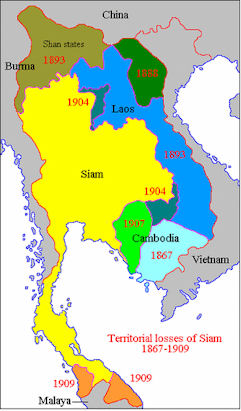

Zitierweise / cite as:
Payer, Alois <1944 - >: Chronik Thailands = กาลานุกรมสยามประเทศไทย. -- Chronik 2011 / B. E. 2554. -- 2. Januar bis Juni. -- Fassung vom 2017-03-22. -- URL: http://www.payer.de/thailandchronik/chronik2011b.htm
Erstmals publiziert: 2013-04-19
Überarbeitungen: 2017-03-22 [Ergänzungen] ; 2017-02-11 [Ergänzungen] ; 2016-12-31 [Ergänzungen] ; 2016-11-30 [Ergänzungen] ; 2016-08-20 [Ergänzungen] ; 2016-04-20 [Ergänzungen] ; 2016-03-17 [Ergänzungen] ; 2015-01-21 [Ergänzungen] ; 2014-11-02 [Ergänzungen] ; 2014-03-13 [Ergänzungen] ; 2014-03-13 [Ergänzungen] ; 2014-02-16 [Ergänzungen] ; 2013-10-17 [Ergänzungen] ; 2013-04-25 [Teilung des Jahrgangs] ; 2013-04-20 [Ergänzungen]
©opyright: Dieser Text steht der
Allgemeinheit zur Verfügung. Eine Verwertung in Publikationen, die über übliche
Zitate hinausgeht, bedarf der ausdrücklichen Genehmigung des Herausgebers.
Dieser Text ist Teil der Abteilung
Thailand von
Tüpfli's Global Village Library
ช้างตายทั้งตัวเอาใบบัวปิดไม่มิด
|
Gewidmet meiner lieben Frau Margarete Payer die seit unserem ersten Besuch in Thailand 1974 mit mir die Liebe zu den und die Sorge um die Bewohner Thailands teilt. |
|
Bei thailändischen Statistiken muss man mit allen Fehlerquellen rechnen, die in folgendem Werk beschrieben sind:
Die Statistikdiagramme geben also meistens eher qualitative als korrekte quantitative Beziehungen wieder.
|
2011-01 - 2011-06
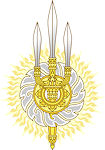
Google Transparenzbericht:
"Wir haben zwei Ersuchen vom Ministerium für Informations- und Kommunikationstechnologie (กระทรวงเทคโนโลยีสารสนเทศและการสื่อสาร) in Thailand erhalten, 225 YouTube-Videos zu löschen, in denen die Monarchie vermeintlich beleidigt wurde, was nach thailändischem Recht eine Majestätsbeleidigung darstellt. Wir haben den Zugang zu über 90 % der Videos für thailändische Nutzer gesperrt." [Quelle: http://www.google.com/transparencyreport/removals/government/TH/?metric=requests&by=reason&p=2011-06. -- Zugriff am 2012-11-17]
2011-01

In Japan nimmt das Instant-Messenger/VoIP-Netzwerk LINE (ไลน์) den Betrieb auf. 2013 hat LINE in Thailand 15 Mio. Nutzer.
Abb.: ©Reklame
[Fair use]
2011-01-04
Das Gesundheitsministerium warnt davor, Plastiktüten als Kondomersatz zu benutzen. Plastiktüten schützten nicht vor Geschlechtskrankheiten, sie könnten auch zu schweren vaginalen Verletzungen führen. In Nordostthailand hatten einige Schüler Plastiktüten statt Kondomen verwendet. Dabei sind Kondome in Thailand gratis erhältlich: Das Gesundheitsministerium verteilt pro Jahr mehr als 20 Millionen Kondome an die Öffentlichkeit.
Abb.: 2 Kondome für 10 Baht. Kondomautomat, Bangkok, 2006
[Bildquelle: Chin, Singapore. -- http://www.flickr.com/photos/chin/345247277/. -- Zugriff am 2012-11-02. -- Creative Commons Lizenz (Namensnennung, keine kommerzielle Nutzung)]
2011-01-04
Neujahrsverkehr vom 29. Dezember bis 4. Januar: 358 Verkehrstote, 3750 Verletzte.
2011-01-05
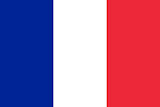
Big C (บิ๊กซี ซูเปอร์เซ็นเตอร์) übernimmt 42 Filialen in Thailand des französischen Einzelhandelsunternehmens Carrefour. Kaufpreis: 35,4 Milliarden Baht.
Abb.: ®Logo
[Bildquelle: Wikipedia. -- Fair use]
Abb.: ®Logo
[Bildquelle: Wikipedia. -- Fair use]
2011-01-06
Tod des Luk Thung (ลูกทุ่ง) Sängers der ersten Generation, Pong Prida (ปอง ปรีดา, geb. 1932)
Künstlerlink auf Spotify:
URI:
spotify:artist:5x0ICiitnsipTrH3z9yVpx
URL:
https://open.spotify.com/artist/5x0ICiitnsipTrH3z9yVpx
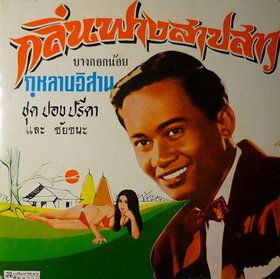
Abb.:
Plattentitel
[Fair use]
2011-01-07
Die Zensurbehörde verbietet den Film Insects in the Backyard, (อินเซค อินเดอะ แบ็คยาร์ด) von Tanwarin Sukkhapisit (ธัญญ์วาริน สุขะพิสิษฐ์, 1973 - ) wegen angeblich unmoralischem und pornographischem Inhalt. Der Film handelt vom Kampf eines transsexuellen Vaters um das Sorgerecht für seinen Sohn.
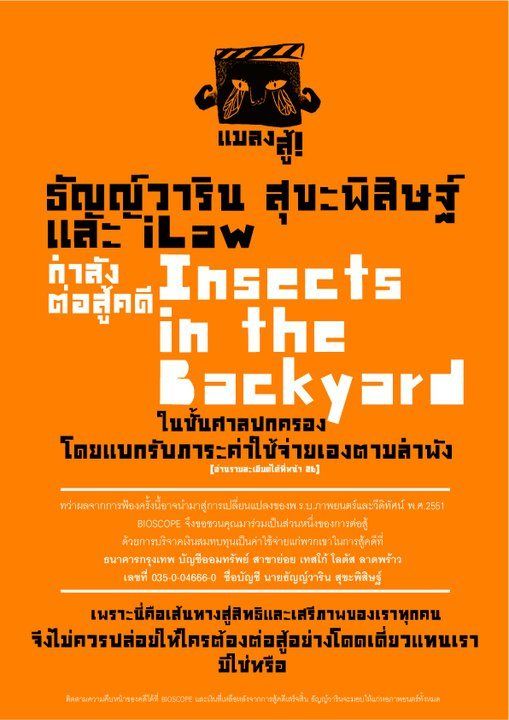
Abb.: Plakat
[Fair use]
2011-01-08
Amphoe Nam Phong (น้ำพอง), Provinz Khon Kaen (ขอนแก่น): Bombenanschlag auf Bibliotheksgebäude der Prem Tinsulanonda Schule (โรงเรียนเปรมติณสูลานนท์). Das Gebäude wird völlig zerstört. Prem Tinsulanonda (เปรม ติณสูลานนท์, 1920 - ) ist der Vorsitzende des Privy Council des Königs (คณะองคมนตรีไทย).
Abb.: ®Logo
Abb.: Lage von Amphoe Nam Phong (น้ำพอง)
[Bildquelle: OpenStreetMap. -- Creative Commons Lizenz (Namensnennung, share alike)]
2011-01-09
Bangkok: Großdemonstration der Rothemden (เสื้อแดง).
2011-01-09
Zwischen 2010-11-05 und 2011-01-09 wurden 35 Provinzen zu Kältekatastrophenzonen (cold spell disaster zones) erklärt: 15 Provinzen in Nordthailand, 19 in Nordostthailand und sowie Ratchaburi (ราชบุรี)
2011-01-11
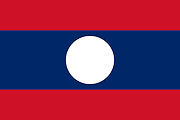
Eröffnung der ersten laotischen Börse: Lao Securities Exchange (LSX) in Vientiane (ວຽງຈັນ). Zunächst sind nur zwei Firmen notiert:
- EDL Generation-Public Company
- Banque Pour Le Commerce Exterieur Lao (BCEL)
Abb.: Lao Securities Exchange (LSX), Vientiane (ວຽງຈັນ), 2011
[Bildquelle: Chaoborus / Wikipedia. -- Creative Commons Lizenz (Namensnennung, share alike]Klicken: Lao Securities Exchange Song 1: ຕະຫຼາດທືນ
[Quelle der mp3-Datei: http://www.lsx.com.la/about/download/viewPost.do?lang=en&pageNo=1&postId=2&searchItem=all&searchText=. -- Zugriff am 2014-02-11. -- Free Download]
2011-01-15
10 Jahre Wikipedia. Nach anfänglichem Dahinsiechen hat sich auch die Thai-Wikipedia (วิกิพีเดีย) zu einem wertvollen Hilfsmittel entwickelt.
Abb.: Entwicklung der Thai-Wikipedia 2546 (2003) - 2554 (2011)
[Bildquelle: Octahedron80 / th.Wikipedia. -- GNU FDLicense]
2011-01-16

Das Arbeitsministerium erwartet, dass Zehntausende von thailändischen Gastarbeitern rekrutiert werden müssen, um die Stadien und die Infrastruktur für die Fußball-Weltmeisterschaft 2022 in Katar (قطر) pünktlich fertigzustellen.
Abb.: Lage von Katar (قطر)
[Bildquelle: OpenStreetMap. -- Creative Commons Lizenz (Namensnennung, share alike)]
Abb.: ®Logo
[Bildquelle: Wikipedia. -- Fair use]
2011-01-18
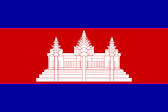
Bangkok: Etwa 1.000 Demonstranten des Thai Patriot Networks (TPN, Gelbhemden - เสื้อเหลือง), hauptsächlich Mitglieder von Santi Asoke (สันติอโศก), ziehen zum Grand Palace (พระบรมมหาราชวัง) überreichen eine Petition gegen die Regierung mit 82.000 Unterschriften an den König. Sie erklären, dass die Regierung im Bezug auf den thai-kambodschanischen Grenzstreit gescheitert ist und nicht genug für die Freilassung der sieben in Kambodscha inhaftierten Thais getan habe.
2011-01-19

Akkreditierung der neuen Botschafterin der USA in Thailand: Kristie Anne Kenney (1955 - )
Abb.: "GULF OF THAILAND (Aug. 5, 2011) Handler Lt. Cmdr. Eric Harrington explains flight deck operations to U.S. Ambassador to Thailand Kristie A. Kenney in flight deck control during her visit aboard the aircraft carrier George Washington (CVN 73). George Washington began its latest patrol on June 12, 2011, departing its forward-operating base of Fleet Activities Yokosuka to patrol the U.S. 7th Fleet area of responsibility."
[Quelle: U.S. Navy photo by Mass Communication Specialist 3rd Class Jacob D. Moore/Released / Wikimedia. -- Public domain]
2011-01-20
Provinz Narathiwat (นราธิวาส): 20 Bewaffnete greifen Armeeposten an: vier Soldaten werden getötet.
Abb.: Lage der Provinz Narathiwat (นราธิวาส)
[Bildquelle: OpenStreetMap. -- Creative Commons Lizenz (Namensnennung, share alike)]
2011-01-21

Goodwill Mission der US Navy:
Abb.: "MAE SOT (แม่สอด), Thailand (Jan. 21, 2011) A Thai monk blesses the first column of new construction for Pa Ka Mai school as Seabees assigned to Naval Mobile Construction Battalion (NMCB) 11, from left, Lt. j.g. Kevin Burnett, Builder 3rd Class Jeffrey Coon, Builder 2nd Class Daniel Guillermety, Construction Electrician 2nd Class Jacob Brickley and members of the Royal Thai Military Mobile Development Unit look on. NMCB-11 is building two school buildings in Mae Sot, Thailand during Cobra Gold 2011, the largest joint exercise in the U.S. Pacific Command."
[Bildquelle: U.S. Navy photo by Builder 2nd Class Lonnie Hensley/Released / Wikimedia. --Public domain]
Abb.: Lage von Mae Sot (แม่สอด)
[Bildquelle: OpenStreetMap. -- Creative Commons Lizenz (Namensnennung, share alike)]
2011-01-22
Stadt Narathiwat (นราธิวาส): Explosion einer 10-kg-Bombe: 1 Toter
Abb.: Lage von Narathiwat (นราธิวาส)
[Bildquelle: OpenStreetMap. -- Creative Commons Lizenz (Namensnennung, share alike)]
2011-01-22
Ban Ka Hong (บ้านกาฮง), Provinz Pattani (ปัตตานี): ein stellvertretender Dorfbürgermeister wird von zwei Männern auf Motorrad erschossen.
Abb.: Lage von Ban Ka Hong (บ้านกาฮง)
[Bildquelle: OpenStreetMap. -- Creative Commons Lizenz (Namensnennung, share alike)]
2011-01-23
Demonstration der Rothemden (เสื้อแดง) zum Gedenken der Opfer während der Unruhen 2010.
Abb.: Ex-Ministerpräsident Thaksin Shinawatra (ทักษิณ ชินวัตร, 1949 - ) auf Redshirt (เสื้อแดง), 2011-01-23
[Bildquelle: Ratchaprasong. -- http://www.flickr.com/photos/ratchaprasong2/5386634486/. -- Zugriff am 2012-10-17. -- Creative Commons Lizenz (Namensnennung, keine kommerzielle Nutzung)]
Abb.: Pro-Thaksin-Demonstranten (ทักษิณ ชินวัตร, 1949 - ), 2011-01-23
[Bildquelle: Ratchaprasong. -- http://www.flickr.com/photos/ratchaprasong2/5386012551/. -- Zugriff am 2012-10-17. -- Creative Commons Lizenz (Namensnennung, keine kommerzielle Nutzung)]
2011-01-23
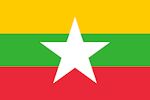
Amphoe Kantang (กันตัง), Provinz Trang (ตรัง): 91 Rohingya-Flüchtlinge (ရိုဟင်ဂျာ) aus dem Rakhine State (ရခိုင်ပြည်နယ်, Arakan), Myanmar, werden abgeschoben. Ein Beamter: "Obwohl es gegen die humanitären Grundsätze verstößt, müssen illegal eingereiste Ausländer nach thailändischem Recht verfolgt werden, damit sich solche Vorfälle in der Zukunft nicht wiederholen."
Abb.: Lage von Amphoe Kantang (กันตัง)
[Bildquelle: OpenStreetMap. -- Creative Commons Lizenz (Namensnennung, share alike)]
Abb.: Lage des Rakhine State (ရခိုင်ပြည်နယ်, Arakan)
[Bildquelle: OpenStreetMap. -- Creative Commons Lizenz (Namensnennung, share alike)]
2011-01-24
Tod von Thongbai Thongpao (ทองใบ ทองเปาด์, 1926 - 2011)
Abb.: Thongbai Thongpao (ทองใบ ทองเปาด์)
[Bildquelel: th.Wikipedia. -- Fair use]
"Well-known human-rights lawyer and Magsaysay award winner Thongbai Thongpao [ทองใบ ทองเปาด์] died yesterday morning aged 84, after suffering heart failure. Thongbai inspired generations of human-rights activists and will probably continue to do so, although some have expressed disappointment at his silence over the years following the 2006 military coup. Born to a poor farming family with five siblings in the northeastern province of Maha Sarakham [มหาสารคาม], Thongbai was arguably the first modern lawyer to challenge the legitimacy of lèse majesté laws, and gave legal help to social critic Sulak Sivaraksa [สุลักษณ์ ศิวรักษ์, 1933 - ] in his fight against lèse majesté charges in 1984. Thongbai, who practised journalism on and off, was detained without charge as a political prisoner during the Cold War between 1958 and 1966 by then dictator Field Marshal Sarit Thanarat [จอมพล จอมพลเรือ จอมพลอากาศ พลตำรวจเอก สฤษดิ์ ธนะรัชต์, 1908 - 1963], after he joined a group of journalists to visit Communist China. "Thongbai was a man who fought for democracy all his life," Sulak told The Nation, upon hearing the news. "After he came out of jail, he helped those in need and is widely admired in the Northeast." Known for his pro bono legal services for poor defendants, Thongbai refused to travel to accept the Magsaysay Award for Public Services from then President-cum-dictator Ferdinand Marcos [1917 - 1989] of the Philippines in 1984, citing Marcos' human-rights record and the shooting to death of opposition leader Benigno "Niño" Aquino [1932 - 1983] a year earlier." He fought against dictators," said Chulalongkorn University [จุฬาลงกรณ์มหาวิทยาลัย] political science lecturer Naruemon Tabchumphon. "He was the first who [legally] fought against lèse majesté laws and for labour cases. When defendants had no money to pay his fee he accepted rice or bananas." Naruemon said Thongbai inspired many others when, after one of the darkest chapters in modern Thai political history - the lynching of leftist students in front of Thammasat University [มหาวิทยาลัยธรรมศาสตร์], where he once studied law - he fought against the military and legally represented people charged accused of being communists. Thongbai worked with many newspapers in the late 1950s and 1960s, including Thai Mai [ไทยใหม่], Pim Thai [พิมพ์ไทย], Siam Nikon, Supha Burut-Prachamit and Khao Phap [ข่าวภาพ]. He was president of the Thai Writers' Association from 1984 to 1986.In latter years, besides becoming a senator, Thongbai wrote a column for the Bangkok Post. Some younger-generation activists who grew up learning about Thongbai's heroic deeds were disappointed when he remained mute as the 2006 military coup took place and last year when some red-shirt protesters were jailed in the aftermath of political violence. "It was rather unfortunate that towards the end of his life he didn't speak up about political violence and political prisoners. We didn't hear these things from him. After the [2006] coup we didn't hear from Uncle Thongbai," said the editor of leftist Fah Diew Kan [ฟ้าเดียวกัน] magazine, Thanaphol Eiw-sakul [ธนา
พล อิ๋วสกุล] . Others like Naruemon are more forgiving. He said that perhaps Thongbai was suffering health problems and was already too old to expect more from him. Sulak said the taint to Thongbai's legacy would be his abandonment of his wife for a younger woman. "Everyone has his or her shortcomings. He hurt his wife a lot, though," said Sulak, who acknowledged that the younger generation of human-rights lawyers had been inspired by the path down which Thongbai acted as a trailblazer. Aware of his legendary soft spot for young women, human-rights activist Sarawut Pratooraj nevertheless regarded Thongbai as a pioneering human-rights lawyer who devoted his life to the public good. A cremation service for Thongbai will be held at the Srimahathat Temple [วัดพระศรีมหาธาตุ] in Bang Khen [บางเขน] on Saturday"[Quelle: Pravit Rojanaphruk [ประวิตร โรจนพฤกษ์]. -- http://www.nationmultimedia.com/2011/01/25/national/Lawyer-Thongbai-Thongpao-84-inspired-generations-30147106.html. -- Zugriff am 2014-11-02. -- Fair use]
2011-01-30
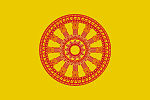
Tod von Ajahn Maha Bua (อาจารย์มหาบัว, geb. 1913)
Abb.: Ajahn Maha Bua (อาจารย์มหาบัว)
[Bildquelle: Wikipedia. -- Public domain]
"Phra Thamma Wisutthi Mongkhon (Bua Yanasampanno) or Phra Dharma Visuddhi Monggol (Bua Ñāṇasampanno) (Thai: พระธรรมวิสุทธิมงคล (บัว ญาณสมฺปนฺโน)), commonly known as Ajahn Maha Bua or in Thai Luang Ta Maha Bua (Thai: พระอาจารย์มหาบัว, หลวงตามหาบัว; the word "Ajahn" (Thai: อาจารย์; RTGS: Achan) means "teacher"), born as Bua Lohitdee (Thai: บัว โลหิตดี), (August 12, 1913 – January 30, 2011), was a Thai Buddhist monk. Bua is one of the best known Thai Buddhist monks of the late 20th and early 21st centuries. He was widely regarded as an Arahant — a living Buddhist saint. He was a disciple of the esteemed forest master Ajahn Mun Bhuridatta (มั่น ภูริทตฺโต / ຫຼວງປູ່ມັ່ນ ພູຣິທັຕໂຕ, 1870 - 1949), and was himself considered a master in the Thai Forest Tradition.[1] He was a harsh critic of Prime Minister Thaksin Shinawatra (ทักษิณ ชินวัตร, 1949 - ) as well as of events taking place in Wat Pa Salawan (วัดป่าสาลวัน) after the death of its abbot Luang Pho Phut (หลวงพ่อพุธ ฐานิโย, 1921 - 1999).[2] Early years
Bua was born in Ban Tat (บ้านตาด) village in the northeastern province of Udon Thani (อุดรธานี). He was one of 16 children of a rich family of rice farmers.[3] When he was 21, his parents asked him to enter the monkhood for a season, a Thai tradition to show gratitude towards one's parents. He entered Yothanimit (วัดโยธานิมิตร) monastery and was ordained on May 12, 1934 with Venerable Chao Khun Dhammachedi (พระธรรมเจดีย์ - จูม พนฺธุโล) as his preceptor. His preceptor gave him the Pali name 'Nanasampanno' (ญาณสมฺปนฺโน), meaning 'one endowed with wisdom'. At the time, Bua had no intention of remaining a monk for the rest of his life.
As Pra Nanasampanno, he studied the incarnations of the Buddha and his Arahant Disciples. He has said he was so impressed that he decided to seek the same enlightenment as had the Buddha's original disciples. He tried to understand the ways of practicing the Dhamma (Dharma) which would eventually lead to Nibbana (Nirvana).
He studied Pali, the language of Theravada Buddhism, as well as the Vinaya (the monastic rules of correct conduct). After seven years, he passed the third level of Pali studies, and achieved the highest level in Dhamma and Vinaya studies. He then concentrated entirely on the practice of Dhamma in hopes of studying with Venerable Ajahn Mun, one of the most renowned meditation masters of his time.[4]
Venerable Ajahn Mun (มั่น ภูริทตฺโต / ຫຼວງປູ່ມັ່ນ ພູຣິທັຕໂຕ, 1870 - 1949)Nanasampanno then went in search of Venerable Ajahn Mun. When he finally met him, he was pleased with his efforts, since it seemed as if Mun already knew his desires, intentions, and doubts. Mun clarified the questions in his mind and showed him the paths leading to Nibbana still exist. Nanasampanno said to himself:
"Now, I have come to the real thing. He has made everything clear and I no longer have doubts. It is now up to me to be true or otherwise. I'm determined to be true!"
He learned the meditation methods followed by Mun, based on the principles of Buddhism and the code of Buddhist discipline. He continued to follow these methods in his own teaching of monks and novices. Due to his deep respect and admiration for Mun, whom he likens to a father and mother to his students, he was inspired to write a biography of Mun to disseminate his methods of practice and document his character for coming generations. He has also written many books on the practice of Buddhist meditation and recorded teachings on Dhamma so Buddhists may have a guide in practicing meditation.[5] One of his fellow student monks was Ajahn Thate (พระราชนิโรธรังสีคัมภีรปัญญาวิศิษฏ์ - เทสก์ เทสรังสี, 1902 - 1994).
Seclusion and establishing a monasteryIn 1950, after the death of Mun, Bua sought a secluded place. He went to Huey Sai village in Mukdahan province (มุกดาหาร). He was very strict and serious in teaching the monks and novices, both in the austere dhutanga (ธุดงค์) practices and in meditation. He continued his teaching until these same principles became established amongst his followers.
Learning that his mother was ill, he returned home to look after her. Villagers and relatives requested that he settle permanently in the forest south of the village and no longer wander in the manner of a forest monk. As his mother was very old and that it was appropriate for him to look after her, he accepted the offer. With a donation of 64 acres (26 ha) of land, he began to build his monastery in November 1955. It was given the name Wat Pa Baan Taad.[5]
Wat Pa Ban Tat (วัดป่าบ้านตาด)
Abb.: Lage von Wat Pa Ban Tat (วัดป่าบ้านตาด)
[Bildquelle: OpenStreetMap. -- Creative Commons Lizenz (Namensnennung, share alike)]Bua said:
"This monastery has always been a place for meditation. Since the beginning it has been a place solely for developing the mind. I haven't let any other work disturb the place. If there are things which must be done, I've made it a rule that they take up no more time than is absolutely necessary. The reason for this is that, in the eyes of the world and the Dhamma, this is a meditation temple. We're meditation monks. The work of the meditation monk was handed over to him on the day of his ordination by his Preceptor - in all its completeness. This is his real work, and it was taught in a form suitable for the small amount of time available during the ordination ceremony - five meditation objects to be memorized in forward and reverse order - and after that it's up to each individual to expand on them and develop them to whatever degree of breadth or subtlety he is able to. In the beginning the work of a monk is given simply as: Kesa - hair of the head, Loma - hair of the body, Nakha - nails, Danta - teeth, Taco - the skin which enwraps the body. This is the true work for those monks who practice according to the principles of Dhamma as were taught by the Lord Buddha."
The wilderness surrounding the monastery has vanished, as it has now been cleared for cultivation. The forest inside the monastery is all that remains. Wat Pa Baan Taad preserves this remnant in its original condition, so that monks, novices, and lay people can use its tranquility for the practice of the Dhamma as taught by the Lord Buddha.[5]
Rise to fameBua has traveled to London to give lectures. He also founded the Help Thai Nation Project, a charitable effort dedicated to helping the Thai economy. He has been visited and supported by the King and Queen of Thailand.
Bua's biographer wrote:
Some basic teachings on the 'Citta'"Ven. Ajahn Maha Bua is well known for the fluency and skill of his Dhamma talks, and their direct and dynamic approach. They obviously reflect his own attitude and the way he personally practiced Dhamma. This is best exemplified in the Dhamma talks he gives to those who go to meditate at Wat Pa Bahn Tahd. Such talks usually take place in the cool of the evening, with lamps lit and the only sound being the insects and cicadas in the surrounding jungle. He often begins the Dhamma talk with a few moments of stillness — this is the most preparation he needs — and then quietly begins the Dhamma exposition. As the theme naturally develops, the pace quickens and those listening increasingly feel its strength and depth."[1]
Bua sees the essential enduring truth of the sentient being as constituted of the indestructible reality of the citta (heart/mind), which is characterized by the attribute of Awareness or Knowingness. This citta, which is intrinsically bright, clear, and Aware, gets superficially tangled up in samsara but ultimately cannot be destroyed by any samsaric phenomenon. Although Bua is often at pains to emphasise the need for meditation upon the non-Self (anatta), he also points out that the citta, while getting caught up in the vortex of conditioned phenomena, is not subject to destruction as are those things which are impermanent, suffering, and non-Self (anicca, dukkha, anatta). The citta is ultimately not beholden to these laws of conditioned existence. The citta is bright, radiant, and deathless, and is its own independent reality:
'Being intrinsically bright and clear, the citta is always ready to make contact with everything of every nature. Although all conditioned phenomena without exception are governed by the three universal laws of anicca, dukkha, and anattã, the citta’s true nature is not subject to these laws. The citta is conditioned by anicca, dukkha, and anattã only because things that are subject to these laws come spinning in to become involved with the citta and so cause it to spin along with them. However, though it spins in unison with conditioned phenomena, the citta never disintegrates or falls apart. It spins following the influence of those forces which have the power to make it spin, but the true power of the citta’s own nature is that it knows and does not die. This deathlessness is a quality that lies beyond disintegration. Being beyond disintegration, it also lies beyond the range of anicca, dukkha, and anattã and the universal laws of nature. ….'[6]
The fundamental problem that besets human beings, according to Bua, is that they have taken fake and false things as their true self and lack the necessary power to be their 'own true self'; they allow the wiles and deceits of the mental defilements to generate fear and anxiety in their minds. Fear and anxiety are not inherent within the citta; in fact, the citta is ultimately beyond all such things and indeed is beyond time and space. But it needs to be cleansed of its inner defilements (the kilesas) before that truth can be realised. Bua states:
‘Our real problem, our one fundamental problem—which is also the citta’s fundamental problem—is that we lack the power needed to be our own true self. Instead, we have always taken counterfeit things to be the essence of who we really are, so that the citta’s behavior is never in harmony with its true nature. Rather, it expresses itself through the kilesas’ cunning deceits, which cause it to feel anxious and frightened of virtually everything … As a result, the citta is forever full of worries and fears. And although fear and worry are not intrinsic to the citta, they still manage to produce apprehension there. When the citta has been cleansed so that it is absolutely pure and free of all involvement, only then will we see a citta devoid of all fear. Then, neither fear nor courage appear, only the citta’s true nature, existing naturally alone on its own, forever independent of time and space. Only that appears—nothing else. This is the genuine citta’.[7]
Bua goes on to attempt to describe the inner stages and experience of the cleansed citta. When its purgation of defilements is complete, it itself does not disappear – only the impermanent, suffering, and the non-Self disappear. The citta remains, experientially abiding in its own firm foundation, yet ultimately indescribable:
‘Once the Citta has become so well-cleansed that it is always bright and clear, then … even though the citta has not ‘converged’ in samãdhi, the focal point of its awareness is so exceedingly delicate and refined as to be indescribable. This subtle awareness manifests as a radiance that extends forth in all directions around us. We are unconscious of sights, sounds, odors, tastes, and tactile sensations, despite the fact that the citta has not entered samãdhi. Instead, it is actually experiencing its own firm foundation, the very basis of the citta that has been well-cleansed to the point where a mesmerizing, majestic quality of knowing is its most prominent feature.
‘Seeming to exist independent of the physical body, this kind of extremely refined awareness stands out exclusively within the citta. Due to the subtle and pronounced nature of the citta at this stage, its knowing nature completely predominates. No images or visions appear there at all. It is an awareness that stands out exclusively on its own. This is one aspect of the citta.
‘Another aspect is seen when this well-cleansed citta enters meditative calm, not thinking or imagining anything. Ceasing all activity, all movement, it simply rests for awhile. All thought and imagination within the citta come to a complete halt. This is called “the citta entering a state of total calm.” Then, the citta’s essential knowing nature is all that remains. Except for this very refined awareness—an awareness that seems to blanket the entire cosmos—absolutely nothing else appears… Distance is not a factor. To be precise, the citta is beyond the conditions of time and space, which allows it to blanket everything. Far is like near, for concepts of space do not apply. All that appears is a very refined awareness suffusing everything throughout the entire universe. The whole world seems to be filled by this subtle quality of knowing, as though nothing else exists, though things still exist in the world as they always have. The all-encompassing flow of the citta that has been cleansed of the things that cloud and obscure it, this is the citta’s true power.
'The citta that is absolutely pure is even more difficult to describe. Since it is something that defies definition, I don’t know how I could characterize it. It cannot be expressed in the same way that conventional things in general can be, simply because it is not a conventional phenomenon. It is the sole province of those who have transcended all aspects of conventional reality, and thus realize within themselves that non-conventional nature. For this reason, words cannot describe it.
'Why do we speak of a “Conventional” Citta and an “absolutely pure” citta? Are they actually two different cittas? Not at all. It remains the same citta. When it is controlled by conventional realities, such as kilesas and ãsavas, that is one condition of the citta. But when the faculty of wisdom has scrubbed it clean until this condition has totally disintegrated, the true citta, the true Dhamma, the one that can stand the test, will not disintegrate and disappear along with it. Only the conditions of anicca, dukkha, and anattã, which infiltrate the citta, actually disappear.
'No matter how subtle the kilesas may be, they are still conditioned by anicca, dukkha, and anattã, and therefore, must be conventional phenomena. Once these things have completely disintegrated, the true citta, the one that has transcended conventional reality, becomes fully apparent. This is called the citta’s Absolute Freedom, or the citta’s Absolute Purity. All connections continuing from the citta’s previous condition have been severed forever. Now utterly pure, the citta’s essential knowing nature remains alone on its own….
'Since this refined awareness does not have a point or a center, it is impossible to specifically locate its position. There is only that essential knowing, with absolutely nothing infiltrating it. Although it still exists amid the same khandhas with which it used to intermix, it no longer shares any common characteristics with them. It is a world apart. Only then do we know clearly that the body, the khandhas, and the citta are all distinct and separate realities…'[8]
Some of the notions found here are reminiscent of the Tathagatagarbha tradition - although the latter posits an original, primordial purity to the mind, whereas Bua sees that purity as needing to be established through mental and moral cultivation.[9]
KammatthanaKammatthana literally means "basis of work" or "place of work". It describes the contemplation of certain meditation themes used by a meditating monk so the forces of defilement (kilesa), craving (tanha), and ignorance (avijja) may be uprooted from the mind. Although kammatthana can be found in many meditation-related subjects, the term is most often used to identify the forest tradition (the Kammatthana tradition) lineage founded by Ajahn Sao Kantasilo Mahathera (พระครูวิเวกพุทธกิจ - เสาร์ กนฺตสีโล, 1859 - 1941) and his student Ajahn Mun Bhuridatta Mahathera.[1]
Criticism of Thaksin ShinawatraOn 27 September 2005, Manager Daily (ผู้จัดการรายวัน)published a sermon by Luang Ta Maha Bua.[10][11] The sermon was extremely critical of Prime Minister Thaksin Shinawatra. Especially controversial were the following quotes:
"They complained to me about PM Thaksin and Mr. Visanu and two other people that I don’t remember. This is the big ogre, big power. Atrocious power will swallow our country, bite liver and lungs and aim for the presidency....He will put a torch to the country. He will never listen....This savagery and atrocity appear in every aspect of him.... All he has are things to be used for burning."
"He is clearly aiming for the presidency now. The monarch trampled, the religion trampled, the country trampled, by this savage and atrocious power in a few people in the government circle. That is the circle of ogres, of ghosts, of trolls, of demons, all in there....So even Devadatta saw the harm he caused, and he was rewarded for his good deed. He would attain Buddhahood. For those who have made mistakes, if we see the harm we cause, we can still get by. But what is it with Thailand? What kind of governance?"
"They even dare to accuse Luangta Maha Bua of playing politics. Politics, what dog shit. There’s only shit all over the country. I brought the Buddha’s dharma to cleanse in order for them to repent and recognize good and evil. Because they’re the government. The world flatters them as smart people, but don’t be smart down in a toilet. Don’t be smart about putting a torch to the head of everyone in the country, from Nation, Religion, and Monarchy on down. These guys will get burned unless they recognize the truth. I’m saddened by all this. How does this come about?"
On 11 October 2005, Thaksin sued Manager newspaper for THB 500 million.[12] As monks have traditionally been above criticism, Thaksin did not sue Luang Ta Maha Bua. "This is an exercise of an individual's right to protect his reputation and privacy. The newspaper did not criticise the prime minister fairly as a public official, but rather it took him to task personally, using harsh words, which was damaging to him," Thana Benjathikul, Thaksin's lawyer said.
Thaksin's legal team noted that other newspapers only published selected passages of the sermon, and furthermore, that a slanderous headline was used. Respected civil rights lawyer Thongbai Thongpao has noted that Thaksin's lawsuit did have merit. He added that the lawsuits "do not constitute an attack on freedom of the press".[13]
The case, along with several other libel cases, was withdrawn after King Bhumibol Adulyadej indirectly advised against such legal action during his annual birthday speech.
As recently as 14 March 2006, Luang Ta Maha Bua asked Thaksin to resign. In a sermon that the monk called "most vehement since the temple was set up," the monk said it was time for Thaksin to abandon the "rotten system he is presiding over". He described the government as "wicked, corrupt, power-hungry, and greedy".[14]"
[Quelle: http://en.wikipedia.org/wiki/Ajahn_Maha_Bua. -- Zugriff am 2012-06-06]
2011-01-31 - 2011-02-05
2011 Fed Cup Asia/Oceania Zone (Frauentennis) in Nonthaburi (นนทบุรี)
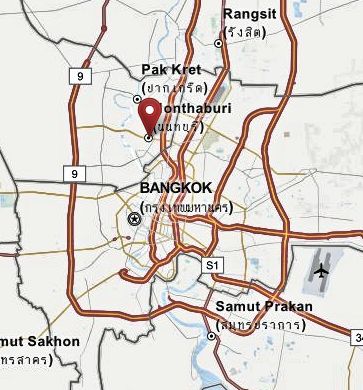
Abb.: Lage von
Nonthaburi (นนทบุรี)
[Bildquelle: OpenStreetMap. --
Creative Commons Lizenz (Namensnennung, share alike)]
2011-02-03

Amphoe Panare (อำเภอ ปานาเระ), Provinz Pattani (ปัตตานี): eine Gruppe Bewaffneter überfällt das Dorf Ban Yai und tötet fünf Buddhisten und verwundet vier.
Abb.: Lage von Amphoe Panare (อำเภอ ปานาเระ)
[Bildquelle: OpenStreetMap. -- Creative Commons Lizenz (Namensnennung, share alike)]
2011-02-03/04
Amphoe Yarang (ยะรัง), Provinz Pattani (ปัตตานี): Zwei Aufständische schlitzen am 3. 2. dem Muslim Abdullah Kaboh die Kehle auf, als er spätabends im Distrikt Yarang in der Region Pattani Kautschuk zapft. Er ist verheiratet und hat sechs Kinder.
Am 4. Februar erschießen zwei Aufständische den 79 Jahre alten Buddhisten Ruem Meesrisawad. Er hatte vor dem Eintritt in den Ruhestand als staatlich unterstützter Heiler nach den Regeln der traditionellen Medizin gearbeitet. Der Angriff erfolgt vormittags, keine 100m entfernt von mehreren Sicherheitskräften.
Abb.: Lage von Amphoe Yarang (ยะรัง)
[Bildquelle: OpenStreetMap. -- Creative Commons Lizenz (Namensnennung, share alike)]
2011-02-04 - 2011-02-07

Heftige Gefechte bei Phu Ma Khua (ภูมะเขือ)zwischen Thai und kambodschanischen Soldaten wegen Prasat Preah Vihear (ប្រាសាទព្រះវិហារ). Ergebnis:
- Thailand: 2 tote Soldaten und 1 toter Zivilist
- Kambodscha: mindestens drei tote Soldaten
2011-02-04

Ex-General Thein Sein (သိန်းစိန်, 1945 - ) wird zum Präsidenten Myanmars gewählt.
Abb.: Myanmar
[Bildquelle: CIA. -- Public domain]
Abb.: Thein Sein (သိန်းစိန်) / von Murray Webb (1947 - ), 2012
[Bildquelle: Webb, Murray, 1947- :[General Sein Thein]. 23 January 2012. Webb, Murray, 1947- :[Digital caricatures published from 29 July 2005 onwards (2006, 2007, 2008). Includes a selection of digital caricatures published from 2002 and up to July 2005.]. Ref: DCDL-0020027. Alexander Turnbull Library, Wellington, New Zealand. http://natlib.govt.nz/records/30116018. -- Zugriff am 2013-03-19. -- "You can copy this item for personal use, share it, and post it on a blog or website. It cannot be used commercially without permission"]
2011-02-10

Die deutsche Rockband Scorpions aus Hannover gastiert im Rahmen ihrer Abschieds-Welttournee in Bangkok. Nach dem Konzert trifft sich die Band mit Ministerpräsident Abhisit Vejjajiva. Die Band-Mitglieder mit Klaus Meine an der Spitze überreichen Abhisit als Erinnerung eine elektrische Flying-V-Gitarre.
Die Gruppe auf Spotify:
URI: spotify:artist:27T030eWyCQRmDyuvr1kxY
URL: https://open.spotify.com/artist/27T030eWyCQRmDyuvr1kxY
Abb.: ®Scorpions, 2007
[Bildquelle: HeavyMezza89 / Wikipedia. -- Public domain]
2011-02-11

Bangkok Post: Der Chef der 2. Armee verteilt Amulette an seine Truppen, die die Soldaten vor bösen Flüchen schützen sollen, denn er ist überzeugt, dass die Kambodschaner in ihrem Kampf um das umstrittene Gebiet die thailändischen Soldaten verfluchen werden.
2011-02-11
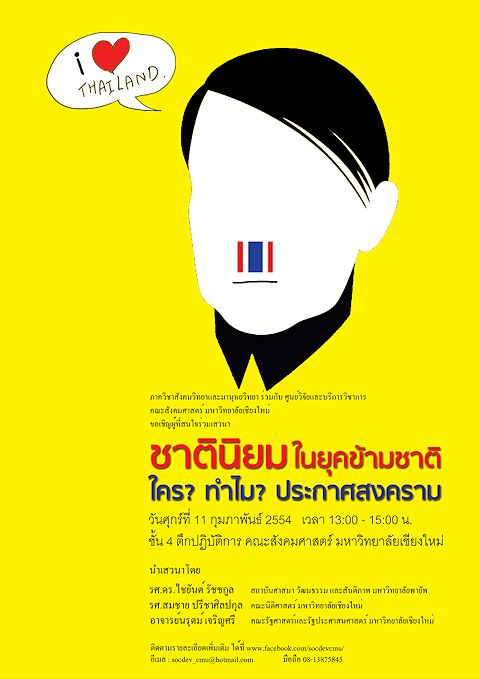
Abb.: Plakat für
ein Seminar über Thai-Nationalismus an der Chiang Mai University (มหาวิทยาลัยเชียงใหม่)
[Bildquelle: Prachatai. --http://www.flickr.com/photos/prachatai/5430732760/in/photostream.
-- Zugriff am 2013-02-11. --
Creative Commons Lizenz (Namensnennung, keine kommerzielle Nutzung, keine
Bearbeitung]
2011-02-13
Yala (ยะลา): Autobombe im Zentrum: Großbrand, 18 Verwundete.
Abb.: Lage von Yala (ยะลา)
[Bildquelle: OpenStreetMap. -- Creative Commons Lizenz (Namensnennung, share alike)]
2011-02-14
Eröffnung der ersten Linie des Schnellbussystems Bangkok BRT (Bus Rapid Transit) (รถโดยสารประจำทางด่วนพิเศษในเขตกรุงเทพมหานครและปริมณฑล).
Abb.: BRT-Busse mit Bus-Spur, Sathorn (สาทร) Station, 2010
[Bildquelle: Sry85 / Wikimedia. -- Creative Commons Lizenz (Namensnennung, share alike)]
Abb.: Ursprünglich geplantes Liniennetz von Bangkok BRT
[Bildquelle: http://www.bangkokbrt.com/file/BRT_%E0%B8%BAbooklet.pdf. -- Zugriff am 2012-06-04]
"The Bangkok BRT is a bus rapid transit system in Bangkok, Thailand. It is owned by Krungthep Thanakom PCL, the holdings enterprise of the Bangkok Metropolitan Administration (BMA), and operated by Bangkok Mass Transit System PCL, the operator of the BTS Skytrain. Plans for a bus rapid transit system in Bangkok were made in 2004 by the BMA and the Ministry of Transport's Office of Transport and Traffic Policy and Planning. In 2005, the BMA settled on a master plan consisting of fourteen BRT routes. Construction on the first route, Sathon (สาทร) –Ratchaphruek (ราชพฤกษ์), began in 2007. The route opened for trial runs on 29 May 2010, and officially opened on 14 February 2011.[1] [2]
The system's island platforms are accessed by elevated enclosed station facilities, and it shares the ticketing system of the BTS Skytrain. The buses run on dedicated bus lanes, which were criticised by motorists during the beginning of the system's trial run for worsening traffic congestion.[3]
Originally, five BRT routes were planned to be open by 2013. The additional four routes were: Mo Chit – Government Complex – Nonthaburi, Sathon – Suk Sawat, Don Mueang – Min Buri – Suvarnabhumi, and Min Buri – Srinagarindra – Samrong. However, it was announced in September 2010 that The Mo Chit – Government Complex route was cancelled, and the other planned routes were expected to be abandoned as well.[4]
[Quelle: http://en.wikipedia.org/wiki/Bangkok_BRT. -- Zugriff am 2012-06-04]
2011-02-14
Laut Social Development and Human Security Ministerium hat Thailand die nach Südafrika weltweit zweithöchste Schwangerschaftsrate bei Frauen im Alter von 15 bis 19 Jahren: ca. 7% der Frauen dieser Altersgruppe werden schwanger (Schweiz: 0,5%; Deutschland: 1,6%; USA; 5,5%).
2011-02-14

Neue Zürcher Zeitung: Marco Kauffmann: "Tödlicher Zank um Kambodschas Tempelberg : nationalistisch aufgeladener Grenzkonflikt mit Thailand"
Anfang des lesenswerten Artikels:
"Die freundlichen Soldaten an der Frontlinie sind stolz auf ihr Vorleben als Kämpfer der Roten Khmer [ខ្មែរក្រហម]. Bis 1998 dienten sie dem Schreckensregime Pol Pots [1928 - 1998]. Jetzt sind sie Teil der königlichen Armee Kambodschas und wollen den Hindutempel Preah Vihear [ប្រាសាទព្រះវិហារ] gegen eine angebliche Invasion Thailands verteidigen. Am gegenüberliegenden Hang sind tatsächlich die mit Sandsäcken verstärkten Stellungen der thailändischen Armee zu sehen." [Quelle: NZZ (Internationale Ausgabe). -- 2011-02-14. -- S. 5]
Abb.: Lage von Preah Vihear (ប្រាសាទព្រះវិហារ)
[Bildquelle: OpenStreetMap. -- Creative Commons Lizenz (Namensnennung, share alike)]
2011-02-15 - 2011-10-23

Bürgerkrieg in Libyen ( ليبيا ). Davon sind ca. 20.000 Thai-Gastarbeiter betroffen.
Abb.: Lage von Libyen ( ليبيا )
[Bildquelle: OpenStreetMap. -- Creative Commons Lizenz (Namensnennung, share alike)]
2011-02-19
Narathiwat (นราธิวาส): Bewaffnete beschießen Karaoke Bar und zünden danach Autobombe: 71 Verwundete.
Abb.: Lage von Narathiwat (นราธิวาส)
[Bildquelle: OpenStreetMap. -- Creative Commons Lizenz (Namensnennung, share alike)]
2011-02-19

Abb.: Jele beauty (โฆษณาเจเล่บิวตี้)
[Bildquelle:
http://fuse.in.th/blogs/trend/3770.
-- Zugriff am 2013-02-11. --
Creative Commons Lizenz
(Namensnennung, keine kommerzielle Nutzung, share alike)]
2011-02-22
Die 2010-05-20 festgenommenen Anführer der Rothemden werden freigelassen (เสื้อแดง). SDie meisten derer, die ins Ausland geflohen sind, beginnen aus dem Exil zurückzukehren.
2011-02-23
Vier Polizisten werden wegen Drogenhandels zu Tode verurteilt. Sie wurden durch verdeckte Ermittler beim Verkauf von 150.000 Pillen ya ba (ยาบ้า) im Wert von 11,25 Millionen Baht gefasst.
Abb.: ya ba - ยาบ้า
[Fair use]
2011-02-24
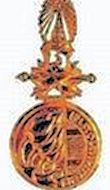
Zu National Artists (ศิลปินแห่งชาติ) werden ernannt:
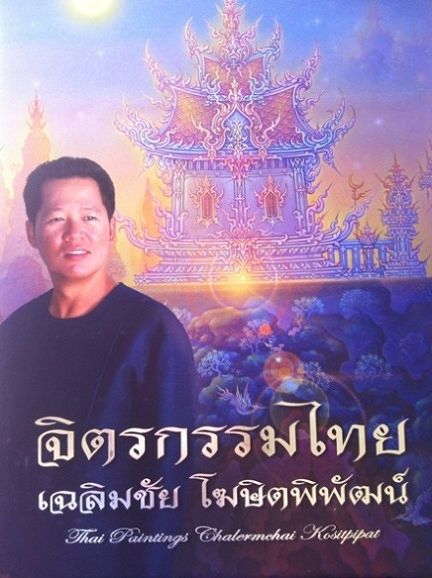
Abb.: Einbandtitel eines Buchs über Chaloemchai
Khositphiphat (นายเฉลิมชัย โฆษิตพิพัฒน์)
[Fair use]
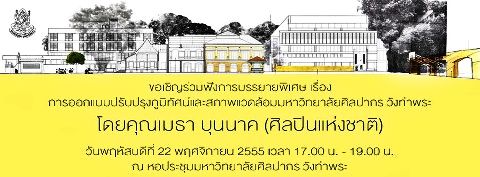
Abb.: Plakat für eine Veranstaltung von Metha Bunnag
(นายเมธา บุนนาค)
[Fair use]
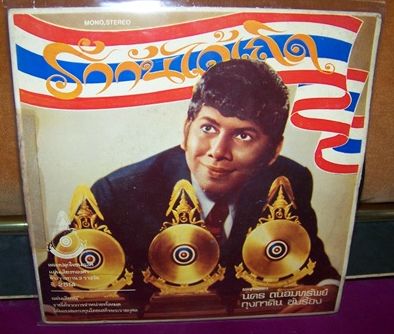
Abb.: Plattentitel von Nakhon Thanomsap (นายนคร
ถนอมทรัพย์ = กุง กาดิน)
[Fair use]
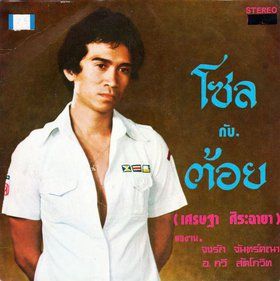
Abb.: CD-Titel von Setha Sirichaya (นายเศรษฐา
ศิระฉายา =ต้อย)
[Fair
use]
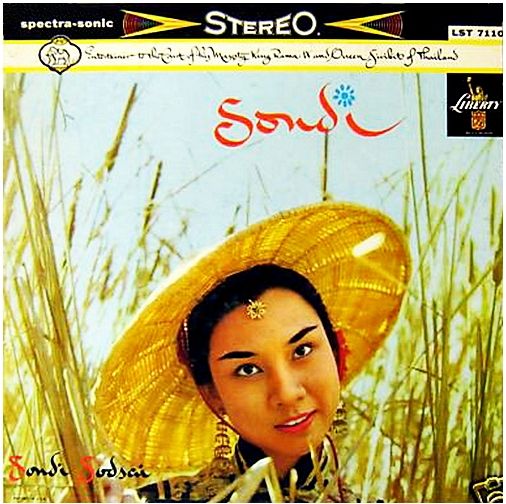
Abb.: Plattentitel von Sodsai Pantoomkomol (รศ. สดใส
พันธุมโกมล = สกุลเดิม วานิชวัฒนา = Sondi Sotsai)
[Fäir use]
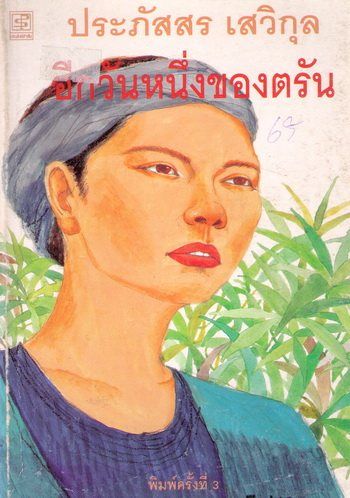
Abb.: Einbandtitel eines Buchs von Prabhassorn
Sevikul (นายประภัสสร เสวิกุล)
[Fair use]
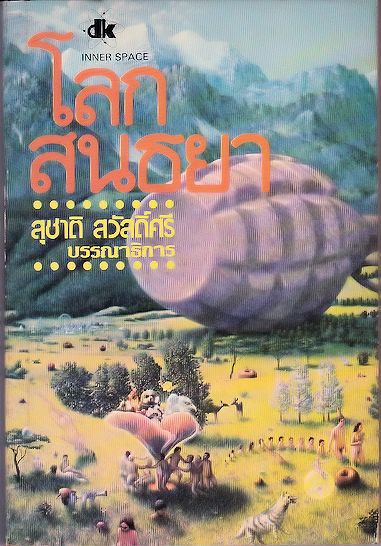
Abb.: Einbandtitel eines Buchs von Suchart Sawasdsri
(นายสุชาติ สวัสดิ์ศรี = สิงห์สนามหลวง = สีกัน บ้านทุ่ง = บุญ ประคองศิลป์)
[Fair use]
2011-02-26
Chayaphum (ชัยภูมิ): Explosion einer Biogas-Leitung: Großfeuer: 31 Arbeiter werden verletzt.
Abb.: Lage von Chayaphum (ชัยภูมิ)
[Bildquelle: OpenStreetMap. -- Creative Commons Lizenz (Namensnennung, share alike)]
2011-02-28
Einige Flugbegleiter von Thai Airways International (THAI) haben sich beim Ministerium für Arbeit beschwert und erklärt, dass THAI die Bürgerrechte verletzten würde, indem THAI für weibliche Flugbegleiter einen Body Mass Index (BMI) von 25 und eine Taille von 32 Zoll vorschreibt und für männliche Flugbegleiter eine Taille von 35 Zoll und einen BMI von 27,5. THAI betont demgegenüber, dass solche Körpereigenschaften nötig sind für die Wettbewerbsfähigkeit des Unternehmens. Weniger als 1% der 6000 Flugbegleiter erfülle diese Kriterien nicht.
BMI = (Gewicht in kg) / (Körpergröße in Metern)². Normalgewicht: Männer: BMI 20 - 25; Frauen: 19 - 24. D.h. THAI lässt leichtes Übergewicht zu.
Abb.: Flugbegleiterin, THAI, 2009
[Bildquelle: Tran's World Productions. -- http://www.flickr.com/photos/transworld/3666648743/. -- Zugriff am 2012-11-01. -- Creative Commons Lizenz (Namensnennung, keine Bearbeitung)]
2011-03
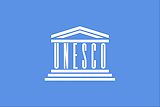
Es erscheint
Clement, Krista: Stateless in their own home. -- In: Voices UNESCO in the Asia-Pacific. -- No.25 (January - March 2011). -- Online: http://www.unescobkk.org/fileadmin/user_upload/culture/Trafficking/project/abc/Selected_Articles_and_Publications/Clement_VOICES_Article.pdf. -- Zugriff am 2014-04-20
"Thai ID card can determine what you are, or what you are not,” stated Akha hill tribe member Chutima Morelaeku at a recent UNESCO workshop for journalists and advocates on birth registration and citizenship for highland people. Chutima Morelaeku, also known as Miju, is an expert on the legal status and rights of the highland people. She is also Director of the Inter Mountain People Education and Culture in Thailand (IMPECT).
In the workshop, Miju speaks about the complexities of the government issuing Thai national identity cards to hill tribe people. Very few identification cards held by hill tribe people establish Thai citizenship, leaving many as stateless individuals. According to data from UNHCR, there are approximately 900,000 hill tribe “color card” holders in Thailand who are not recognized as Thai citizens, and are therefore functionally stateless.
Without citizenship or legal status, hill tribes are considered “illegal aliens” in their own country. UNESCO research has shown that a lack of legal status is the single greatest risk factor for a highland person in Thailand to be trafficked or otherwise exploited.Hill tribe people who lack legal status are exposed to a broad range of risks including unlawful arrest, deportation, extortion and exploitation. Lack of legal status also effectively denies hill tribe people of an education, political participation, land ownership, mobility outside of their home provinces and medical care.
Without citizenship, ethnic populations in Thailand are unable to obtain official documents that acknowledge the completion of education, entitlement to land, or the ability to work outside one’s home region.
The UNESCO Highland Peoples Survey researched a sample group of 192 border villages in Chiang Mai [เชียงใหม่], Chiang Rai [เชียงราย / เจียง
ฮาย ] and Mae Hong Son [แม่ฮ่องสอน] provinces to determine the impact of legal status (citizenship and birth registration) on access to social services, education, health care, land tenure and agricultural credit.The survey of 63,724 people make it the largest household survey of its type in Thailand. The study revealed that 37 per cent of these hill tribe people did not have Thai citizenship.
Comparing highland persons who lack legal status with those holding Thai citizenship, those lacking citizenship are 80 per cent less likely to enter primary school and 75 per cent less likely to progress to secondary school.Recently, UNESCO Bangkok conducted two workshops, one in English and the other in Thai, for journalists and advocates including academics, NGOs and UN agency representatives on birth registration and citizenship for highland people. Over 60 participants attended the events.
The Journalist and Advocacy Training Workshops were organized to provide in-depth knowledge to journalists and advocates to better understand the complexity of the issues of hill tribe birth registration and citizenship, and to increase public awareness of the consequences it has on them. The ultimate goal is to minimize the human trafficking of hill tribe people.David Feingold, consultant for Trafficking and HIV/AIDS Projects at UNESCO Bangkok presented the history of citizenship for hill tribe persons and shared his experiences working in an Akha community in Northern Thailand during the 1960s.
Mr. Feingold explained that citizenship was never an issue among hill tribe communities until economic policies began to drive them out of villages.
“Because of residence and travel restrictions, the further they travel away from their communities, the more vulnerable they become,” he said.
Due to the limitations they are subject to, many hill tribe people are employed in informal and exploitative work environments. They are also at a disproportionate risk for being trafficked.
The process for registering persons for permanent residency or citizenship is extremely complicated. Each household is required to complete and submit numerous application forms, and include supporting documentation. In certain cases, children without birth registration may be asked to undergo DNA testing to determine their ethnicity.“Birth registration is the first official document issued by the state to recognize a person by law,”
said Veerawit Tianchainan [วีรวิชญ์ เธียรชัยนันท์], Executive Director, Thai Committee for refugees, an NGO in Thailand.
“To solve the problem of stateless people, we have to trace back to the origins of the persons and find a connection point with the state,” he said.Mr. Veerawit addressed the workshop on Thailand’s complex birth registration and citizenship laws. He pointed out the various different statuses that exist for ethnic groups. He said the Thai National Security Council is making progress toward granting hill tribe people legal status. He stated that people who have been living in Thailand for 20 to 30 years, and are registered by law but are still considered illegal migrants will be granted permanent residency, and their children will be granted Thai nationality.However, according to Ms. Miju, Director of IMPECT, there is a stark contrast between what is written in Thai law and how it is being implemented on the ground.
“The majority of officials doesn’t understand the laws and processes, and therefore cannot aide villagers in accessing their rights,” she said.She emphasized the need for competent translators who not only understand the language, but birth registration and citizenship law.Ms. Miju also urged journalists to report the stories of hill tribe communities.
Bangkok Post columnist Sanitsuda Ekachai [สนิทสุดา เอกชัย, 1955 - ] offered technical advice to the participants and stressed the need to recognize the complexities of reporting on birth registration and citizenship issues.She also emphasized raising the issue via social media networks such as Twitter, Facebook, and blogs.“The problem is cultural attitudes, racism and ultra-nationalism, we treat it as a non-issue,” said Ms. Sanitsuda.
Mr. Feingold highlighted the importance of structural, institutional and cultural change to address the statelessness of hill tribe persons.
“The future of cultural and even physical survival of hill tribe communities in Thailand depends on recognition and enforcement of their right to belong to the country,” he said.
The UNESCO Trafficking project has maintained ongoing concern for highland legal status issues that are major sources of vulnerability. With the generous support of the British Embassy in Bangkok, UNESCO has continued its implementation of the project, ‘Promoting Human Rights for Highland Minorities through Citizenship and Birth Registration’, in Thailand
The Trafficking project has successfully trained and supported Thai government officials and local NGOs to assist highland people in the processes required to obtain Thai birth registration and citizenship."[a.a.O. -- Fair use]
2011-03-01
Bangkok: Großfeuer zerstört 10 Geschäftshäuser in Soi Sala Daeng (ซอยศาลาแดง)
Abb.: Lage von (ซอยศาลาแดง)
[Bildquelle: OpenStreetMap. -- Creative Commons Lizenz (Namensnennung, share alike)]
2011-03-03

Rund 8.000 thailändische Gastarbeiter warten in Libyen noch darauf, nach Hause gebracht zu werden. Weitere 10.000 wollen im Land bleiben. 2.000 sind schon nach Thailand zurückgekehrt (siehe oben 2011-02-15).
2011-03-04
Pranburi (ปราณบุรี): aus dem Hauptquartier des Thanarat Infantry Corps sind 117 M16 Gewehre, zehn 11mm-Pistolen, zehn Granaten, fünf M-79 Granatwerfer, vier M-60 Maschinengewehre, ein 60-mm Mörser und eine große Menge an Munition gestohlen worden.
Abb.: Lage von Pranburi (ปราณบุรี)
[Bildquelle: OpenStreetMap. -- Creative Commons Lizenz (Namensnennung, share alike)]
Abb.: M16-Gewehre
[Bildquelle: Offspring 18 87 / Wikipedia. -- GNU FDLicense]
Abb.: 11mm-Pistole, 2009
[Bildquelle: AndyFCraig / Wikimedia. -- Public domain]
Abb.: M-79 Granatwerfer, 2007
[Bildquelle: BrokenSphere / Wikimedia Commons. -- GNU FDLicense]
Abb.: M-60 Maschinengewehr, 1987
[Bildquelle: US DoD / Wikipedia. -- Public domain]
Abb.: 60mm-Mörser, Schweiz, 2006
[Bildquelle: TheBernFiles / Wikimedia. -- Public domain]
Abb.: Beispiele für Munition, 2001
[Bildquelle: Ninjatoth. -- Creative Commons Lizenz (Public domain)]
2011-03-06 - 2011-04-03
Erste Staffel von Thailand's Got Talent (ไทยแลนด์ก็อตทาเลนต์). Siegerin: Maneepatsorn Myra Molloy (มณีภัสสร ไมร่า มอลลอย, 1997 - )
Künstlerlink auf Spotify:
URI:
spotify:artist:30yozRF4B2uaL6eDBsLH96
URL:
https://open.spotify.com/artist/30yozRF4B2uaL6eDBsLH96

Abb.: Maneepatsorn Myra Molloy (มณีภัสสร ไมร่า มอลลอย), 2012
[Quelle:
molloyjm / Wikipedia. --
Creative Commons
Lizenz (Namensnennung, share alike)]
|
"Maneepatsorn Myra Molloy (Thai: มณีภัสสร ไมร่า มอลลอย born 18 September 1997) is a Thai-American soprano, classical crossover artist. In 2011, Myra won the premier season of Thailand's Got Talent with her renditions of Time to Say Goodbye and Think of me.[1] The total prize was valued at 10 million baht. BackgroundPreviously Myra was best known for her youtube video Somewhere Over The Rainbow which went viral in 2007 receiving over three million views and reaching number four in the youtube category music/Jazz. Currently a music and art scholar at Shrewsbury International School, Myra has made numerous public performances since winning the competition." [Quelle: http://en.wikipedia.org/wiki/Myra_Molloy. -- Zugriff am 2013-04-21] |
2011-03-06
Amphoe Yarang (ยะรัง), Provinz Pattani (ปัตตานี): Sechs Bewaffnete schießen mit M16 und AK-47 (Kalschnikow) Gewehren wahllos auf eine Gruppe, die sportliche Übungen macht: 5 Schwerverletzte.
Abb.: Lage von Amphoe Yarang (ยะรัง)
[Bildquelle: OpenStreetMap. -- Creative Commons Lizenz (Namensnennung, share alike)]
Abb.: M16-Sturmgewehr, 2007
[Bildquelle: Dragunova / Wikipedia. -- GNU FDLicense]
Abb.: AK-47 (Kalschnikow, Автомат Калашникова образца 47), 1988
[Bildquelle: US DoD / Wikipedia. -- Public domain]
2011-03-06/07
Tausend Bauern blockieren die Schnellstraße von Phitsanulok (พิษณุโลก) nach Nakhon Sawan (นครสวรรค์). Ihre Forderungen: Erhöhung des garantierten Reispreises von 10.000 auf 14.000 Baht, Erhöhung der Quote von 25 auf 40 Tonnen pro Familie, Erhöhung der Ersatzzahlung für Ernteausfälle um 30% auf 10.000 Baht pro Tonne.
Abb.: Lage von Phitsanulok (พิษณุโลก) und Nakhon Sawan (นครสวรรค์)
[Bildquelle: CIA. -- Public domain]
2011-03-07

Bericht von Marco Kauffmann Bossart in der Neuen Zürcher Zeitung: "Thailands umzingelte Regierung : Anfeindungen aus dem royalistischen Lager - Misstrauensantrag der Oppositionspartei.
Aus der Situationsschilderung Bossarts:
"Auf einem Plakat wird Ministerpräsident Abhisit Vejjajiva [อภิสิทธิ์ เวชชาชีวะ, 1964 - ] als Pinocchio karikiert. Ein Männchen mit sehr langer Nase, das nicht mehr weiß, ob es den Thais oder den Khmer verpflichtet ist. Die mehreren hundert Demonstranten der People’s Alliance for Democracy (PAD, [พันธมิตรประชาชนเพื่อประชาธิปไตย]), die seit einigen Wochen zwei Strassen vor dem Regierungsgebäude blockieren, spielen mit dem Plakat auf die ihrer Ansicht nach zu nachgiebige Haltung Abhisits gegenüber Kambodscha an. Sie erinnern sich daran, wie er als Oppositionsführer dem Nachbar gehörig eingeheizt und versprochen hatte, im Territorialstreit um den Tempel Preah Vihear [ប្រាសាទព្រះវិហារ] nicht klein beizugeben. Der Hindutempel aus dem 11. Jahrhundert ist seit Jahrzehnten Gegenstand heftiger Auseinandersetzungen zwischen den beiden Staaten. Bei Gefechten im Februar wurden mindestens zehn Personen getötet." [Quelle: NZZ (Internationale Ausgabe). -- 2011-03-07. -- S. 4]
Abb.: Nicht mehr der Darling der Ultrarechten: Abhisit Vejjajiva (อภิสิทธิ์ เวชชาชีวะ), 2009
[Bildquelle: The Official Site of The Prime Minister of Thailand Photo by พีรพัฒน์ วิมลรังครัตน์. -- http://www.flickr.com/photos/thaigov/3739343583/. -- Zugriff am 2012-10-11. -- Creative Commons Lizenz (Namensnennung)]
2011-03-10


"Am 10. März 2011 wurde Ekkachai Hongkangvarn auf Basis des Lèse-Majesté-Gesetzes angeklagt, weil er DVDs eines australischen Dokumentarfilms über Thailands Monarchie verkauft und Kopien von durch WikiLeaks veröffentlichten diplomatischen Depeschen über Thailand übersetzt hatte. Er wurde gegen Kaution aus der Haft entlassen." [Quelle: http://amnesty.de/jahresbericht/2012/Thailand. -- Zugriff am 2012-10-23]
2011-03-10
Der Gesundheitsminister Jurin Laksanawisit (จุรินทร์ ลักษณวิศิษฎ์, 1956 - ) hält die über 1300 Fisch-Spa's in Thailand für unhygienisch und überlegt deren Schließung. In diesen Spas hält man die Füße in ein Wasserbecken mit Saugbarben (Garra rufa). Die Fische knabbern die tote Haut an Zehen und Fußsohlen ab.
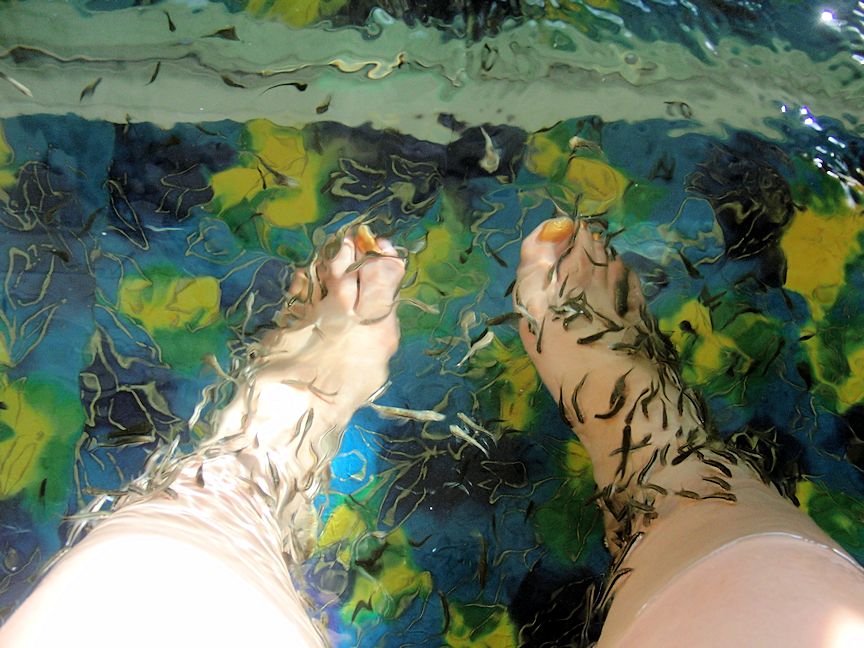
Abb.: Fisch-Spa, Chiang Mai (เชียงใหม่),
2009
[Bildquelle: eric
molina. --
http://www.flickr.com/photos/iamagenious/4984501063/. -- Zugriff am
2013-01-12. --
Creative Commons Lizenz
(Namensnennung)]
2011-03-11

Tsunami- und darauf folgende Reaktor-Katastrophe in Japan. Über 15.500 Tote und 7.300 Vermisste. Kernschmelze im Atomkraftwerk Fukushima (福島第一原子力発電).
Die japanischen Auto-Hersteller (Toyota, Honda, Mitsubishi, Nissan) sind froh über ihre Produktionsanlagen in Thailand, da in Japan die Produktion wegen Strommangels behindert ist infolge des Ausfalls der Kernkraftwerke.
Abb.: Höhen des Tsunami des Tōhoku-Erdbeben 2011 (平成23年(2011年)東北地方太平洋沖地震), 2011-03-11
[Bildquelle: Pekachu / Wikipedia. -- Public domain]
Abb.: Strahlenverseuchung durch die Atomkraftwerk-Katastrophe in Fukushima, 2011-03-30 bis 2011-04-03
[Bildquelle: National Nuclear Security Administration (NNSA) US Department of Energy / Wikimedia. -- Public domain]
2011-03-12
Jahrestag des Beginns der Proteste der Rothemden (เสื้อแดง) 2010: Zehntausende bei Kundgebung zur Erinnerung an die Geschehnisse. Riesiges Aufgebot von Regierungstruppen. Thaksin Shinawatra (ทักษิณ ชินวัตร, 1949 - ) hält per Videoschaltung eine Ansprache.
Abb.: Demonstration der Rothemden (เสื้อแดง), 2011-03-12
[Bildquelle: Ratchaprasong. -- http://www.flickr.com/photos/ratchaprasong2/5522432526/. -- Zugriff am 2012-10-17. -- Creative Commons Lizenz (Namensnennung, keine kommerzielle Nutzung)]
Abb.: Video-Ansprache von Thaksin Shinawatra (ทักษิณ ชินวัตร, 1949 - ), 2011-03-12
[Bildquelle: Ratchaprasong. -- http://www.flickr.com/photos/ratchaprasong2/5521864305/. -- Zugriff am 2012-10-17. -- Creative Commons Lizenz (Namensnennung, keine kommerzielle Nutzung)]
2011-03-15

"Am 15. März wurde Thanthawuthi Thaweewarodom, Webdesigner der Domain norporchorusa.com, wegen Verstoßes gegen das Lèse-Majesté-Gesetz zu zehn Jahren Gefängnis und auf der Grundlage des Gesetzes über Computerdelikte zu weiteren drei Jahren Freiheitsentzug verurteilt, weil seine Internetseite Texte enthielt, die als monarchiekritisch erachtet wurden. Es handelte sich entweder um seine eigenen Einträge oder Kommentare anderer, die er nicht gelöscht hatte. Er befindet sich noch in Haft." [Quelle: http://amnesty.de/jahresbericht/2012/Thailand. -- Zugriff am 2012-10-23]
2011-03-17
Premiere des Films "Suck Seed" (ซัก ซี้ด ห่วยขั้นเทพ).
Abb.: Plakat
[Bildquelle: Wikipedia. -- Fair use]
"SuckSeed is a Thai comedy film released in 2011 by GTH (จีทีเอช). Directed by first-time feature director Chayanop Boonprakob (ชยนพ บุญประกอบ), it stars teenage actor Jirayu Laongmanee (จิรายุ (เก้า) ละอองมณี, 1995 - ) as well as first-time actors Pachara Chirathivat (พชร จิราธิวัฒน์, 1993 - ), Thawat Pornrattanaprasert (ธวัช พรรัตนประเสริฐ, 1994), and Nattasha Nauljam (ณัฐชา นวลแจ่ม, 1994 - ). The film follows the antics of three secondary school students who form a rock band to impress girls, but, despite their efforts, play poorly and regularly end up losers. Based in part on Chayanop's thesis project short film about a band of young members who perform badly but insist on trying, the film features themes of teenage dreams, friendship, romance, and their expression through music, and includes pieces of popular rock songs interspersed within the narrative as well as cameos by several well-known musicians. The film was released in Thailand on 17 March 2011, earning 21.4 million baht on its opening weekend and 38.04 million during its first week."
[Quelle: http://en.wikipedia.org/wiki/Suck_Seed. -- Zugriff am 2012-03-05]
2011-03-18
Laut offiziellen Angaben verbrauchte die Armee 118.000 Schuss Munition bei ihren Einsätzen gegen die Rothemden (เสื้อแดง) 2010. Darunter sind 2.120 Stück Munition für Scharfschützen sowie 6.600 Platzpatronen.
2011-03-20
Änderung der Regelungen zur Wehrpflicht für Transsexuelle: Wehrpflichtige werden jetzt so klassifiziert:
- Typ 1: Männer mit einem typisch männlichen Erscheinungsbild
- Typ 2: Männer mit Brustimplantaten
- Typ 3: Männer mit einer vollständigen Geschlechtsumwandlung
Normalerweise werden nur Männer Typ 1 zum Wehrdienst eingezogen, gibt es davon zu wenige, kann auch Typ 2 eingezogen werden.
2011 werden 97.000 wehrpflichtige 21-jährige eingezogen.
Abb.: Typ1: "Washington Soldiers Train With Thai Military in Counter-Insurgency Exchange", 2010
[Bildquelle: Washington National Guard. -- http://www.flickr.com/photos/washingtonguard/5018150105/. -- Zugriff am 2012-11-05. -- Creative Commons Lizenz (Namensnennung)]
'
Abb.: Typ 2: "Ladyboy", Bangkok, 2011
[Bildquelle: Joseph Ferris III. -- http://www.flickr.com/photos/josephferris76/6152517349/. -- Zugriff am 2012-11-05. -- Creative Commons Lizenz (Namensnennung)]
Abb.: Typ 3: Boxerin Nong Tum (: น้องตุ้ม ปริญญา เจริญผล, 1981 - ), 2006
[Bildquelle: Fairtex from Thailand / Wikipedia (OTRS). -- Creative Commons Lizenz (Namensnennung)]
2011-03-22

Maja Synke Prinzessin von Hohenzollern (1971 - ) besucht Thailand als Botschafterin des "Thailandfreunde e.V.".
"ST - Prinzessin Maja von Hohenzollern besucht Thailand als Botschafterin der Thailandfreunde e.V. ( Phuenthai German International Organization ). Schon bei ihrem ersten Auftritt vor der Presse konnte sie nicht verheimlichen, wie kritisch sie angesichts der Tragödie in Japan die thailändischen Pläne zur Einführung von Atomenergie sah. Sie sagte: "So halte ich die Idee für Thailand Kernenergie einzusetzen, nachdem was wir in Japan gesehen haben, für höchst bedenklich." Sie schnitt auch kurz den Grenzkonflikt mit Kambodscha und die innenpolitischen Auseinandersetzungen zwischen den verschiedenen Gruppen an in dem sie sagte : " Diplomatie ist das höchste Gut, welches wir Menschen haben.
Jedweder Konflikt der Menschenleben kostet, sollte vermieden werden. Wenn Brüder und Schwestern gegeneinander kämpfen so kann dies nicht im Sinne der Schöpfung, des Thailändischen Königs und der Menschenrechte der Vereinten Nationen sein."
Die Thailändische Übersetzung schwächte erstaunlicherweise nichts von den Aussagen ab !
Selten deutliche Worte, die man so von gewissen Politikern, der derzeitigen Regierung(en) ( weltweit ) und auch Thailands gerne hören würde.
Prinzessin Maja wird auf ihrer Reise in Thailand Projekte unterstützen wie die "Northern School for the blind", die unter der Schirmherrschaft von Königin Sirikit steht, und sie wird ihren Kampf gegen Sextourismus und Kinderprostitution weiter führen. Außerdem setzt sie sich für Tier- und Naturschutz ein.
[...]
"Auf vielen Gebieten hat die Thailändische Monarchie mehr geleistet, als die zivilen Regierungen. Und das, was seine Majestät König Bhumiphol Adulyadej aufgebaut hat, Tourismus als Wirtschaftsfaktor ist dabei nur ein Beispiel, wird durch Korruption und falsches Denken in zivilen Regierungen zerstört."
[...]
Unabhängig hiervon scheint Prinzessin Maja besonders den Norden des Landes fördern zu wollen. Sie erklärte: "Regionen wie Chiang Mai [เชียงใหม่] werden einfach unterschätzt. Chiang Mai ist für mich ein Kandidat als World Heritage of Culture der Vereinten Nationen. Ich will dort auch Gespräche mit Choochart Kalmapijit [ชูชาติ กัลมาพิจิตร] dem Chef des MaeSa Elephant Camp [ปางซ้างแม่สา] führen, um zu sehen wie ich als Botschafterin für Tier und Naturschutz in Europa helfen kann, in Chiang Mai zunächst eine Elefantenklinik und dann später ein Hospital in Kooperation mit Mae Sa Elefantencamp aufbauen zu helfen. Ich werde mit der Kulturkanzlerin Dr. Chao Duandueng na Chiang Mai [เจ้าดวงเดือน ณ เชียงใหม่, 1929 - ], und dem Gouverneur Mom Luang Panada Disakul [ร้อยเอก หม่อมหลวงปนัดดา ดิศกุล, 1956 - ] sprechen, um zu sehen was in Punkto Unterstützung zur Reaktivierung des Qualitätstourismus in Nordthailand und Thailand generell möglich ist. Und ich werde natürlich die Blindenschule und touristische Stätten wie die Chiang Mai Night Safari besuchen."
Während in Bangkok die Behörden die Prinzessin weitestgehend ignorieren, da sie laut Aussage der Deutschen Botschaft eine völlig normale Person sei, ohne Ansprüche darauf die BRD zu vertreten, sperrte die Verkehrspolizei in Chiang Mai für die Prinzessin die Strassen. Auf dem Chiang Mai Nachtmarkt machte sie spontan ein gewünschtes Photo mit einem Bettler und half einem hinkenden Straßenhund, der durch Behördenvertreter auf ihre Bitte eingefangen, beim Tierarzt behandelt und wieder auf die Strasse gesetzt wurde.
Wir wünschen der mutigen Frau viel Erfolg bei ihrer Mission."
[Quelle: http://www.schoenes-thailand.de/startseite/gesellschaft/7666-deutsche-royals-in-thailand. -- Zugriff am 2012-11-05. -- Fair use]
2011-03-23
Schaffung der Provinz Bueng Kan (บึงกาฬ).
Abb.: Lage der Provinz Bueng Kan (บึงกาฬ)
[Bildquelle: Ahoerstemeier / Wikipedia. -- Creative Commons Lizenz (Namensnennung, share alike)]
"Bueng Kan (Thai: บึงกาฬ) ist die 76. Provinz (Changwat) in der Nordostregion von Thailand, dem so genannten Isaan (อีสาน). Sie wurde durch das Gesetz Act Establishing Changwat Bueng Kan, BE 2554 (2011) gegründet, das am 23. März 2011 inkraft trat.[1] Dazu wurden die acht östlichen Landkreise (Amphoe) der Provinz Nong Khai (หนองคาย) abgetrennt. Die neue Provinz bekam ihren Namen vom zentralen Amphoe Mueang Bueng Kan. Geographie
Die Provinz liegt am nordöstlichen Rand von Thailand. Sie grenzt an die folgenden Provinzen (von Süden im Uhrzeigersinn): Nakhon Phanom, Sakon Nakhon, Udon Thani und Nong Khai. Nach Norden und Osten grenzt sie an Laos mit dem Mekong als natürliche Grenze.
Im Landkreis Bung Khla (บุ่งคล้า) liegt in den Hügeln nahe dem Mekong das Wildschutzgebiet Phu Wua (ภูวัว).
[...]
GeschichteIm Jahr 1994 schlug Sumet Phromphanhao, Abgeordneter des Repräsentantenhauses des Königreichs Thailand aus Nong Khai vor, eine neue Provinz zu gründen, die aus den Amphoe Bueng Kan (เมืองบึงกาฬ), Seka (เซกา), So Phisai (โซ่พิสัย), Bung Khla (บุ่งคล้า), Bueng Khong Long (บึงโขงหลง), Pak Khat (ปากคาด), Phon Charoen (พรเจริญ) und Si Wilai (ศรีวิไล) der Provinz Nong Khai bestehen sollte. Sollte die neue Provinz genehmigt werden, wäre sie 4305 km² groß[2] und hätte ungefähr 390.000 Einwohner.[3] Zu jener Zeit lehnte der Innenminister die Gründung einer neuen Provinz ab, mit der Begründung, dies stelle eine zu große Belastung für den Staatshaushalt dar.[4]
Der Vorschlag lag für die folgenden Jahre auf Eis, bis 2010 der Innenminister das Projekt wieder aktivierte und dem Ministerrat Thailands die „Bill Establishing Changwat Bueng Kan, BE ... (...)“ (ร่างพระราชบัญญัติจัดตั้งจังหวัดบึงกาฬ พ.ศ. ...) vorlegte.[3] Bei einer Volksbefragung unterstützten 98,83 % der Einwohner der Provinz Nong Khai den Vorschlag.[3] Am 3. August 2010 beschloss der Ministerrat, den Vorschlag dem thailändischen Parlament vorzulegen.[5][6] Als Gründe wurden angegeben: der Vorschlag weise die Mindestanzahl der notwendigen Amphoe sowie der Einwohner auf, die für eine Provinz gesetzlich vorgeschrieben sind. Außerdem sei die Landesgrenze entlang des Mekong in der Provinz Nong Khai sehr lang, was die Sicherung schwierig gestalte.[7]
Am 7. Februar 2011 wurde das Gesetz vom Parlament verabschiedet.[8] Premierminister Abhisit Vejjajiva legte König Bhumibol Adulyadej den „Act Establishing Changwat Bueng Kan, BE 2554 (2011)“ (พระราชบัญญัติตั้งจังหวัดบึงกาฬ พ.ศ. 2544) vor, der es am 11. März 2011 unterzeichnete. Am 22. März 2011 wurde es in der Government Gazette veröffentlicht, und am folgenden Tag trat es inkraft.[1]"
[Quelle: http://de.wikipedia.org/wiki/Bueng_Kan_%28Provinz%29. -- Zugriff am 2012-04-07]
2011-03-23
Überschwemmungen, besonders in Südthailand.
"The 2011 Thai floods occurred at the end of March 2011, normally the latter part of the dry season (Thai: ฤดูแล้ง reutdu lang or หน้าแล้ง nah lang) in tropical Thailand. Heavy rain fell in the southern region, with over 120 centimetres (47 in) of rain falling in certain areas.[5] Impact
At least 53 people have died and almost nine million people have been affected by the floods after localized heavy rains[3] The flooding has affected 50 of Thailand's 76 provinces.[6] Close to 160,000 ha (400,000 acres) of land have been submerged.[2] Around 5,000 households have been evacuated,[7] in addition to hundreds of tourists. Nakhon Si Thammarat Province (นครศรีธรรมราช) has been worst-affected, and a state of emergency was declared in several provinces.[8]
CausesThe floods hit during a typically dry season, and were triggered when a record cold wave moved south from East Asia and produced persistent flooding in combination with near-normal sea surface temperatures, still warm enough to support strong convectional precipitation.[9] However, Thailand's Deputy Chief Negotiator for the UNFCCC stated that the floods were likely caused by climate change, as over 2,200 mm (87 in) of rain had fallen in parts of Southern Thailand for the four months leading up to the beginning of April while the year of 2010 saw a total of 270 cm (110 in).[10]
[Quelle: http://en.wikipedia.org/wiki/2011_Southern_Thailand_floods. -- Zugriff am 2012-04-07]
2011-03-23 (?)
Nachweisbarer erster Eintrag der Facebook-Gruppe ยุทธการลงทัณฑ์ทางสังคม - Social Sanction: SS. Ziel ist "Anti-corruption & Protect Monarchy", das heißt dass die Mitglieder "gefährliche" Aktivitäten im Internet aufspüren und denunzieren.
"Social Sanction Group: Organizing political cyber-bullying and witch hunts Around the middle of 2010, bullying became more organized when a group called Social Sanction (SS) was founded. Run anonymously, the group’s main objective was to ‘sanction bad guys’. It was founded on Facebook and gained popularity. SS was arguably the thing that made cyber-bullying widely known among Thai Facebook users and intensified the impact of bullying. By around July 2013, the page had more than 35,000 ‘Likes’.A co-founder of SS, whose name is withheld due to safety concerns and is referred to here as ‘Mana’, told this writer that the group was founded because they believed that Thailand was sinking into an abyss as the result of corrupt politicians and they had no faith in the police or any established social institution except the monarchy.Consisting of people who love the king and are against former premier Thaksin Shinawatra, the group believed that they had to help build a good society by themselves and SS activities were one way of fighting evil and creating goodness. Since all members were royalists, the ‘sanction’ of individuals who expressed comments critical of the King was inevitable and became the main task of the group, he said.“I discussed with my friends how to deal with this as citizens when wrongdoers went unpunished. Someone suggested 'We must use social sanctions like other countries’. I thought, yeah, we must do it,” said Mana. “This method was used in the west.”As they had no faith in the police, the group believed that “exposing” bad guys who posted defamatory messages about the monarchy would help bring the bad guys into the judicial system and expose them to the public. They also hoped that the bullying would create fear and prevent others from doing the same.“We have to kill a chicken to show to a pack of monkeys,” he said, quoting a Thai proverb.
Bullying by the Social Sanction. Text in white in the middle says "The face of the evil from hell who likes to defame (the king)!"
In 2010 and 2011 the group was arguably ‘successful’ in creating a climate of fear in Thai internet circles.The end of the SS came in July 2013 when the group launched a bullying campaign against the wrong person in a case unrelated to the monarchy. The mistake brought strong condemnation from Thai Facebook communities. The SS later closed down its page after they were threatened with a lawsuit and bombarded with photos of excrement.Throughout the four years of SS’s existence, about 50 people were bullied."[Quelle: Thaweeporn Kummetha: "Witch hunts" at rally sites and on the Internet. -- 2014-01-23. --http://prachatai.org/english/node/3837. -- Zugriff am 2015-01-17. -- Fair use]
2011-03-23
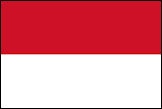

Bangkok Post: Wassana Nanuam: Prayuth: Indonesian observers not wanted
"Defence Minister Prawit Wongsuwon [ประวิตร วงษ์สุวรรณ, 1945 - ] and commanders of all armed forces have resolved not to allow Indonesian observers to enter the 4.6 square kilometre dispute area on the Thai-Cambodian border. Army Chief Prayuth Chan-ocha [ประยุทธ์ จันทร์โอชา, 1954 - ] said on Wednesday. General Prayuth insisted the top brass wanted the Thai-Cambodian conflict to be solved by the two countries only. He said the army had made a proposal to Cambodia through the Foreign Ministry that if there are to be joint checkpoints in the disputed area a centre should be set up to coordinate their operations. The coordination centre must be manned by Thai and Cambodian soldiers only. It is not necessary to have Indonesian observers." [Zitiert in: Pavin Chachavalpongpun [ปวิน ชัชวาลพงศ์พันธ์]: From marketplace back to battlefest. -- In: "Good coup" gone bad : Thailand's political developments since Thaksin's downfall / ed by Pavin Chachavalpongpun [ปวิน ชัชวาลพงศ์พันธ์]. -- Singapore : Institute of Southeast Asian Studies, 2014. -- 290 S. ; 23 cm. -- ISBN 9789814459600. -- Konferenzband zu: Five years after the military coup : Thailand's political developments since Thaksin's downfall. -- Singapore 2011-09-19. -- S. 271]
2011-03-24
Erdbeben im Shan-Staat Myanmars, Mae Sai (แม่สาย) und Chiang Rai (เชียงราย). Ein Toter in Mae Sai.
Abb.: USGS ShakeMap, 2011-03-24
[Bildquelle: United States Geological Survey / Wikipedia. -- Public domain]
2011-03-25
Ein Gericht verurteilt 13 Führer der Gelbhemden (เสื้อเหลือง), an Airports of Thailand (AoT) 522 Mio. Baht Entschädigung plus 7,5% Zinsen zu zahlen für die Blockade der beiden Bangkoker Flughäfen von 2008-11-26 bis 2008-12-03.
2011-04-01
Im Hafen von Bangkok werden 247 Stoßzähne von afrikanischen Elefanten beschlagnahmt. Der Container war als gefrorene Makrelen deklariert. Wert: 100 Mio. Baht.
Illegal importiertes Elfenbein wird in Thailand geschnitzt vorwiegend an Touristen verkauft bzw. exportiert.
Abb.: Verbreitung des Afrikanischen Elefanten 2007
[Bildquelle. Bamse / Wikipedia. -- GNU FDLicense]
Abb.: Von Wilderern um des Elfenbeins willen ermordeter afrikanischer Elefant, Kenia, 2010
[Bildquelle: Ina96 / Wikimedia. -- Creative Commons Lizenz (Namensnennung, share alike)]
2011-04-01

Tod des ehemaligen CIA-Agenten William (Bill) Young (1934 – 2011)
William (Bill) Young (28 October 1934 – 1 April 2011) was a Central Intelligence Agency paramilitary officer born in Burma and raised in Thailand. Although he was Caucasian, he was reared in the local hill tribe culture. Because his father and brother already worked for the CIA and knew Bill Lair (1924 - 2014), the Agency knew of his extensive cultural contacts with the Lahu people (มูเซอ / ล่าหู่ / 拉祜族) and other Southeast Asian hill tribes. With command of several Asian languages, he was made a natural recruiter of local guerrillas for the CIA's covert operations in the secret war in the Kingdom of Laos. He was then considered for the position of case officer to Hmong (ม้ง / แม้ว) Vang Pao (วังเปา, 1929 - 2011). He was passed over in favor of sending him on an extended reconnaissance of the Kingdom of Laos. His tour ranged westward from his start at Long Tieng—which he reported as well-sited for operations in the Plain of Jars (ທົ່ງໄຫຫິນ) —back to familiar territory in the Golden Triangle. While assigned to paramilitary duty in Nam Yu, Laos, in the Golden Triangle from 1962 to 1967, Young trained a militia army of several thousand hill tribesmen and spied on the People's Republic of China. In time, he clashed with his superiors over the increasing aerial bombing of Laos, and was fired. He spent almost all the rest of his life as a businessman in Chiang Mai (เชียงใหม่), Thailand. Upon occasion, he would work security for an oil company in Sudan, or consult for the U.S. Drug Enforcement Administration. Plagued by ill-health in his later years, he committed suicide on 1 April 2011.
Family backgroundYoung was born on 28 October 1934 in Kengtung (ၵဵင်းတုင်) in British-ruled Burma, into the third generation of a Baptist missionary family. The mission was first established among Lahu in the Burmese mountains by Young's grandfather, William Marcus Young. The eldest Young converted many hill tribesmen to Christianity, his proselytizing aided by the Lahu cultural belief in the coming of a white god. Bill Young's father Harold inherited the mission and moved it to Chiang Mai in northern Thailand. Bill Young grew up participating in the Lahu tribe's traditions of hunting, hiking, and jungle survival. Not only did his youthful adventures equip him for life as a jungle dweller, it raised him in multiple languages. His knowledge of Thai (ภาษาไทย), Lahu (ภาษาลาฮู), Shan (ၽႃႇသႃႇတႆး) and Lao (ພາສາລາວ) would be a key asset to the Central Intelligence Agency in the future.[1] So was his family's significance to the Christianized hill tribes, which Young would play upon to support his anti-Communist activities for the Central Intelligence Agency.[2]
Both Young's elder brother Gordon (1927 - 2016) and his father Harold (1901 - 1975) aided the CIA with an intelligence gathering net of Lahu agents extending from northern Thailand into southern China. While Harold recruited agents and gathered the resultant intelligence, Gordon trained the agents in broadcast procedures and radio repair. Bill Young met Bill Lair through this family connection.[1] Lair claimed he first met Young when the latter was 18 years old—"a big, strong, good looking, very innocent guy." That establishes their first meeting as being in late 1952 or early 1953.[3]
Central Intelligence Agency serviceSon Bill followed in his father's footsteps by joining the CIA after serving in the U.S. Army in Germany. He was then hired by the CIA in 1958[4] as an interpreter and translator, as he knew five tribal languages.[5] Bill Young's knowledge of the Golden Triangle region, command of indigenous languages, and recent military experience made him an ideal candidate for service in the CIA's paramilitary wing—then known as the Special Operations Division. The Agency's rueful joke concerning Bill Young stated that he had an American exterior to disguise his Lahu interior. The very cultural background that made Young so valuable to the CIA would also become the font of their problems with him. He was stubbornly independent, and tended to take orders only from Bill Lair. In Lahu fashion, he was not strict in observing a punctual duty schedule. He did not always observe the niceties of calendar or watch, which led to complaints from other CIA case officers. Young was known to have a legion of female admirers, and a penchant for the occasional French leave, thus irritating his superiors. Additionally, his personality clashed with that of coworker Pat Landry as they worked together at the Royal Thai Air Force Base at Udorn (อุดรธานี). All of these scotched his chance for which he seemed ideally suited, that of CIA adviser to Hmong General Vang Pao.[6]
Lair's solution to this personnel problem was to ship Young out from headquarters into the field. He used him to assist in founding the Operation Momentum guerrilla training program, before sending him out to spot locations for new guerrilla bases in Laos. Young flew toward the Plain of Jars and found a feasible location at Long Tieng. It would be developed by the CIA paramilitary into Lima Site 20 Alternate, the center of the purportedly Secret War.[6][7]
Lair thought Young uniquely qualified to operate solo in a culture so different from American ways. Lair had Young work his way westward toward the mountains where he was reared. Young's directions were to contact village headmen for recruitment, and to find airstrip locations for Lima Sites. He was also exploring a possible line of retreat for Vang Pao's army through Sainyabuli Province (ໄຊຍະບູລີ) southward into Thailand.[8] Young reached Sainyabuli Province in January 1962. Keeping a low profile there throughout the spring, he was able to recruit only 30 new guerrillas.[9]
Later in 1962, Young moved northward into far northwestern Laos, as close to the familiar Burmese hills and Shan as possible. Given the shortage of Royal Lao regulars in the vicinity, the CIA decided to raise a guerrilla force. However, given Young's record of under-achievement to date, Lair thought the most Young might accomplish would be to organize a local force of Yao (เย้า / 瑤族) irregulars, or reactivate his father's old agent network into China. With a pool of about 100,000 Yao to draw from, plus some scattered smaller ethnic minorities, Young managed to raise a part-time militia of several thousand guerrillas.[8][10]
Young established his base at Nam Yu, Laos, in the Golden Triangle just south of the Chinese border; as part of his base, he opened Lima Site 118A so he could have aerial resupply.[4] Some 20 additional dirt airstrips for STOL (short takeoff and landing) aircraft were carved out throughout the area by late 1963. He also established a second site nearby for refugee relief operations; the setup was analogous to that at Long Tieng and Sam Thong.[11] Nam Yu, being near the borders of both Burma and China, offered easy access to both nations. Initially, Young enrolled Burmese Shan for leadership and communications roles because they spoke English. Their major drawback was their scarce numbers in the Laotian populace. However, Young's family background facilitated recruitment from the Shan National Army in far northern Burma. He also had contacts within the National Chinese remnants there; indeed, Battalion Especiale 101 (Special Battalion 101) of the Laotian army was raised from this group. However, by late 1962, this source of manpower would come to be shunned by the CIA as the Kuomintang holdovers began to edge into opium trading. Their past poor performance in combat also told against their retention.[12]
The espionage teams trained by Young were segregated by ethnic background. Beginning in 1964, those codenamed Scope carried out reconnaissance as their military intelligence mission. Conversely, Tartar teams were tasked with road watch and ground photography duties.[12] As part of his operations, Young also seeded two childhood friends as spies into an opium smuggling caravan entering China. They photographed Chinese engineers building a highway through the trackless Yunnan (云南) wilderness into Laos, and headed for Thailand.[4]
Young also had the telephone lines on the Chinese side of the border tapped, although no valuable information was gained. However, with no outside enemy to fight, his tribal militia tended to squabble with one another over ethnic differences.[13] Nevertheless, there would be more than 50 cross-border missions between 1962 and 1971. Beginning in 1963, Young would also use locally recruited Kuomintang (中國國民黨) troops to raid villages occupied by the opposing Pathet Lao (ປະເທດລາວ).[14]
After five years labor, Young had a guerrilla training program in full swing and teams of spies infiltrating China's Yunnan Province, as well as three radio listening posts just within the Burmese border, aimed at China.[2] With all this was established, Young was replaced by Louis Ojibwe, soon killed in action, then subsequently by Tony Poe [Anthony Alexander Poshepny, 1924 – 2003] in Summer 1965.[4] Young moved south to work at Ban Houayxay (ຫ້ວຍຊາຍ) on the Mekong River to report on enemy boat traffic. He was tardy in submitting reports, however; Poe fired him, supposedly for this lack of diligence.[15] However, Young had also argued bitterly with his superiors about the increase in air strikes throughout Laos that would lead to its becoming the most heavily bombed nation in history.[2] Additionally, an incident in early 1964, when he supplied an unauthorized shipment of M1 Garands to Mien (Yao) guerrillas, aroused extreme antipathy from the local Thai liaison officer, Captain Siri Pandy. Pandy returned to Bangkok. Young was recalled to CIA Headquarters for this insubordinate act in October 1964.[16][17]
Abb.: M1 Garand
[Bildquelel: Wikimedia. -- Public domain]Young was returned to Nam Yu in August 1965, to run the cross-border infiltrations of local intelligence teams. By the time Young resigned from the CIA in 1967, he had not only organized the trans-border spying operations that wiretapped the Chinese telephone network, he had founded a training program that graduated 35 new agents every other month, and set up three communication stations in Burma near the Chinese border to monitor Chinese radio traffic. Given that legal commerce in opium permeated the population of northwestern Laos, it was inevitable that Young both dealt with opium smugglers and was accused of engaging in opium smuggling. Young maintained he followed the CIA policy of indifference to the trade.[18]
Later lifeAfter Young departed CIA employ, he was employed by former Burmese Prime Minister U Nu (ဦးနု, 1907 - 1995). Beginning in April 1969, he roamed from one wealthy donor to another, swapping trade concessions in Burma for funds to establish the United National Liberated Front (ULNF). Returning from the United States, Young joined in recruiting ULNF troops. However, the Lahu recruits and the Chinese trainers engaged in ethnic quarrels. The UNLF failed because of this disunity.[17]
Young moved back to Chiang Mai. He began trading in gems, and owned an orchard and a guest house. He ran a hospitable home, throwing parties for stewardesses and nurses. He married one of the former, and made an abortive move to the United States. He divorced, and returned to Chiang Mai.[19] Upon occasion, he would trade upon his CIA background, to work as an oil firm's security consultant in Sudan or for the U.S. Drug Enforcement Administration.[2]
Serious health problems, including emphysema, beset him during his final years and he died by his own hand on 1 April 2011.[2] When Thai police discovered his body, he had a pistol in his right hand and a crucifix in his left. He had been paid $100,000 by a major Hollywood studio for his life story of adventure as a tribal warlord, but the film was never made.[19]
[Quelle: https://en.wikipedia.org/wiki/Bill_Young_(CIA_officer). -- Zugriff am 2018-08-20]
2011-04-02
Amphoe Thepa (เทพา), Provinz Songkkhla (สงขลา / Singgora): Bombenanschlag auf Markt: sechs Thahan Phran (ทหารพราน, Rangers) und vier Zivilisten werden verletzt.
Abb.: Lage von Amphoe Thepa (เทพา)
[Bildquelle: OpenStreetMap. -- Creative Commons Lizenz (Namensnennung, share alike)]
2011-04-02
Ayutthaya (อยุธยา): Die Polizei ermittelt gegen eine illegale Sex-Lotterie: Hauptpreis ist Sex mit einer jungen Frau. Ein Los kostet 30 Baht. Die Ergebnisse der Ziehung werden gleichzeitig mit denen der offiziellen Lotterie veröffentlicht. Die Gewinner können dann eine Frau zwischen 18 und 25 Jahren aus einem Katalog wählen. Der Gewinn muss innerhalb von drei Tagen konsumiert werden.
Jirapan Pimpan (จิรพันธ์ พิมพันธ์), Ayutthaya Provincial Cultural Council president, verurteilte es als unmoralisch, eine Frau für nur 30 Baht über eine Lotterie anzubieten.
Abb.: Lage von Ayutthaya (อยุธยา)
[Bildquelle: OpenStreetMap. -- Creative Commons Lizenz (Namensnennung, share alike)]
2011-04-05

Thailändische Beamte bestätigen bei einem Treffen mit der "Cluster Munition Coalition" (CMC), dass Thailand während des Grenzkonflikts mit Kambodscha Streubomben eingesetzt hat. Dies ist weltweit der erste Einsatz von Streumunition seit die Konvention von 2008 gegen Streumunition in Kraft getreten ist. Bei der Munition handelt es sich um M-42 / M-46 und M-85 DPICM (Dual-Purpose Improved Conventional Munitions).
Abb.: Von Artillerie abgefeuerte M42/M46 DPICM Streubombe, Kambodscha, 2011-04
[Bildquelle: Stéphane de Greef, Landmine and Cluster Munition Monitor. -- http://www.flickr.com/photos/clustermunitioncoalition/5592661154/. -- Zugriff am 2012-11-05. -- Creative Commons Lizenz (Namensnennung)]
Abb.: M-46-Feldkanone, 2005
[Bildquelle. Bukvoed / Wikimedia. -- GNU FDLicense]Atle Karlsen von Norwegian People's Aid sagte : "Im Sen-Chey Dorf sind rund 5.000 Menschen betroffen die das Risiko eingehen müssen durch Blindgänger verletzt zu werden. Thailand muss Informationen herausgeben um die betroffenen Gebiete zu sichern." (Zitat: http://www.schoenes-thailand.de/startseite/verschiedenes/7740-thailand-nutzte-streubomben. -- Zugriff am 2012-11-05)
"Die Cluster Munition Coalition (CMC) ist ein internationales Bündnis von Menschenrechtsorganisationen, Vereinigungen und Initiativen gegen Streumunition. Sie tritt für folgende Forderungen ein:
- sofortiges Ende der Herstellung, der Verbreitung und des Einsatzes von Streumunition
- verbesserte Hilfeleistungen für die von den Folgen des Einsatzes dieser Munition betroffenen Menschen und Regionen
- Umsetzung von Regressansprüchen gegen die Verursacher der entstandenen Folgeschäden
Die Cluster Munition Coalition wurde am 13. November 2003 in Den Haag von 85 Mitgliedern aus 42 Ländern gegründet. Ihre Zahl ist seither auf 151 Mitglieder aus 48 Ländern angewachsen (Stand 1. Juni 2005), darunter große Menschenrechtsorganisationen wie Amnesty International und Human Rights Watch, Organisationen der christlichen Friedensbewegung wie Pax Christi und als Vertreter des Roten Kreuzes dessen kanadische Organisation. Das Land mit dem weitaus höchsten Anteil an Mitgliederorganisationen ist Kanada (48), gefolgt von Großbritannien (17) und den Niederlanden (9). In Deutschland gehört die deutsche Sektion von Handicap International der CMC an. Die weltweite Esperanto-Bewegung ist durch SAT (Sennacieca Asocio Tutmonda, deutsch: Anationaler Weltverband der Esperantisten) in der Koalition gegen Streuminen vertreten."
[Quelle: http://de.wikipedia.org/wiki/Cluster_Munition_Coalition. -- Zugriff am 2012-11-05]
2011-04-05
Das Handelsministerium erlaubt den Herstellern von Sojaöl den Preis für die 1-Liter-Flasche Soja-Speiseöl von 46 Baht auf 55 Baht zu erhöhen. Der Preis für 200 cm² Milch darf um 25 Satang angehoben werden.
Da durch die Überschwemmungen viele Garnelenfarmen in Südthailand zerstört worden sind, dürfte der Export statt der erwarteten 360.000 Tonnen um 50.000 Tonnen niedriger liegen. Die Gesamtproduktion an Garnelen in Südthailand liegt in Normaljahren bei 600.000 Tonnen jährlich.
Abb.: Getrocknete Garnelen (shrimps), Bangkok, 2006
[Bildquelle: h e r v e. -- http://www.flickr.com/photos/madzoy/289594313/. -- Zugriff am 2012-11-05. -- Creative Commons Lizenz (Namensnennung, keine kommerzielle Nutzung, share alike)]
2011-04-06

Newin Chidchob (เนวิน ชิดชอบ, 1958 - ) von der Bhumijaithai Party (พรรคภูมิใจไทย) setzt eine Autokarawane in Bewegung, um im ganzen Land 1,5 Mio. Fotografien des Königs ans Volk zu verteilen. Dies ist Teil des Parteiprojekts "Meine Familie liebt den König".
Abb.: Einbandtitel
"Newin Chidchob (Thai: เนวิน ชิดชอบ, born 4 October 1958) is a Thai politician. As a member of several political parties, Newin and his allies eventually joined the Thai Rak Thai Party (พรรคไทยรักไทย) of Thaksin Shinawatra (ทักษิณ ชินวัตร, 1949 - ) in 2005. Until the 2006 Thai coup d'état (รัฐประหารในประเทศไทย พ.ศ. 2549), he served as a member of the Parliament for Buriram Province (บุรีรัมย์) and was a Cabinet minister with the Thai Rak Thai party. From 2002 to 2005, he was Deputy Minister of Agriculture and Agricultural Cooperatives. After the 2006 Thai coup d'état and the dissolution of Thai Rak Thai, he and his friends, mostly members of the National Assembly from the southern part of Isan or northeastern region, shifted from the ruling (now dissolved) People Power Party (PPP, พรรคพลังประชาชน) to the opposition Democrat Party (พรรคประชาธิปัตย์) during the 2008 Thai political crisis (การชุมนุมของกลุ่มพันธมิตรประชาชนเพื่อประชาธิปไตย พ.ศ. 2551).[1] He is the leader of the so-called "Friends of Newin Group" (กลุ่มเพื่อนเนวิน)), now known as the "Bhumjaithai Party" (พรรคภูมิใจไทย). Consequently the Democrat Party led coalition gained the majority in the National Assembly. Abhisit Vejjajiva (อภิสิทธิ์ เวชชาชีวะ, 1964 - ), Democrat Party's leader, was voted by the majority of the Parliament's members to be the new prime minister in December 2008.
During the political tension in April 2009 caused by pro-Thaksin groups widely known as the Red Shirts (เสื้อแดง), Newin publicly blasted Thaksin, his former 'boss', as the root of the political tension due to his 'doubts' of Thaksin's loyalty towards the monarchy and the current political system of the kingdom. Previously in 2008, Newin had wept with Thaksin when the former PM kissed the tarmac at Suvarnabhumi airport after returning to Thailand after a self-imposed exile.
Newin was named after the Burmese leader Ne Win (နဝင်း, 1910/11 - 2002).[1]
Crimes and punishmentsOn 19 June 1998, the Buriram Provincial Court handed Newin a suspended six-month jail sentence and a ฿50,000 fine in a vote-buying slander case filed by Democrat MP Karun Sai-ngam. A year later, the Constitutional Court ruled 7-6 that Newin could keep his ministerial post.[2]
Newin was acquitted in 2009 of involvement in the rubber sapling scandal for bid rigging, corruption and collusion.[3]
In 2007 Newin was banned from politics for five years for being an executive of the disbanded Thai Rak Thai Party, however he continues to be active in politics despite the ban, famously engineering a coalition government with his group and the Democrat Party.[4]"
[Quelle: http://en.wikipedia.org/wiki/Newin_Chidchob. -- Zugriff am 2012-11-05]
2011-04-08

Die Luftwaffe hat für den Gebrauch des Königshauses drei zwölfsitzige S-92A-Hubschrauber von Sikorsky Aircraft Corporation (USA) erworben.
Abb.: S-92A, USA, 2010
[Bildquelle: Christopher Ebdon. -- http://www.flickr.com/photos/av8pix/5295719618/. -- Zugriff am 2012-11-05. -- Creative Commons Lizenz (Namensnennung, keine kommerzielle Nutzung, share alike)]
"The S-92A is the civilian variant and is available in a number of versions. The civil transport version has an airliner-type interior which seats 19 passengers. The utility transport version has 22 side-facing seats with a full cabin width rear ramp. The 733 ft³ interior cabin area can also be configured to accommodate up to three airline-style LD3 cargo containers. Additional stowage space is available in the 140 ft³ area located in the aft ramp compartment. During development it was referred to as the S-92C Helibus." [Quelle: http://en.wikipedia.org/wiki/Sikorsky_S-92. -- Zugriff am 2012-11-05]
2011-04-10
Jahrestag des ersten brutalen Vorgehens der Regierungstruppen gegen die demonstrierenden Rothemden (เสื้อแดง): ca. 20.000 gedenken mit einer buddhistischen Zeremonie und einer Schweigeminute der Opfer des Bürgerkriegs. Thaksin Shinawatra (ทักษิณ ชินวัตร, 1949 - ) hält per Videoschaltung eine Ansprache.
Abb.: Plakat bei Kundgebung der Rothemden (เสื้อแดง), 2011-04-10
[Bildquelle: Ratchaprasong. -- http://www.flickr.com/photos/ratchaprasong2/5611877184/. -- Zugriff am 2012-10-17. -- Creative Commons Lizenz (Namensnennung, keine kommerzielle Nutzung)]
2011-04-11

Bericht von Marco Kauffmann Bossart in der Neuen Zürcher Zeitung über die Arbeit der Untersuchungskommission zu den 91 Toten und 2000 Verletzten bei der gewaltsamen Räumung der Innenstadt Bangkoks vor einem Jahr, nach den Protesten und Ausschreitungen der Rothemden (เสื้อแดง).
Bossart kommt zu folgender Einschätzung:
"Angesichts der starken Stellung der Königlichen Thailändischen Armee scheint es unwahrscheinlich, dass die Untersuchungskommission, die durch das Zusammentragen der Fakten auch einen Beitrag zur Versöhnung leisten soll, ihrer Aufgabe gerecht werden kann. Als sehr unwahrscheinlich gilt, dass der unverhältnismässig wirkende Einsatz gegen Zivilisten rechtliche Folgen haben wird. Die Armeeeinheiten dürften aufgrund der im Frühjahr 2010 geltenden Notstandsgesetze Immunität geniessen. Und die Regierung hat bisher nicht den Tatbeweis erbracht, dass ihr an einer umfassenden Aufklärung der Ereignisse gelegen ist." [Quelle: NZZ (Internationale Ausgabe). -- 2011-04-11. -- S. 4]
2011-04-16
Verkehrsbilanz von Songkran (สงกรานต์) 11. bis 15. April: 188 Tote, 2.800 Verletzte.
2011-04-17
Bangkok: Strafanzeige gegen drei Coyote dancing girls, die an Songkran (สงกรานต์) in Silom (สีลม) oben-ohne tanzten, ebenso gegen ihre Unterstützer sowie diejenigen, die ein Video davon im Internet verbreiteten. Der Video Clip habe dem Ruf Thailands geschadet.
Abb.: Lage von Silom (สีลม)
[Bildquelle: OpenStreetMap. -- Creative Commons Lizenz (Namensnennung, share alike)]
Abb.: Oben-ohne an Songkran (สงกรานต์), 2011-04
[Fair use]
Abb.: Silom (สีลม) - Bezirk der Schamhaftigkeit?, 2008
[Bildquelle: misskoco. -- http://www.flickr.com/photos/misskoco/2192397592/. -- Zugriff am 2012-11-05. --Creative Commons Lizenz (Namensnennung, keine kommerzielle Nutzung, share alike)]
2011-04-18
18 Anführer der UDD werden vom DSI vorgeladen wegen des Vorwurfs der Majestätsbeleidigung. Beschuldigt werden:
Weng Tojirakarn (เหวง โตจิราการ, 1951 - )
- Nattawut Saikua (ณัฐวุฒิ ใสยเกื้อ, 1975 - )
- Korkaew Pikulthong (ก่อแก้ว พิกุลทอง, 1965 - )
- Thida Thavornseth (ธิดา ถาวรเศรษฐ, 1944 - )
- Karun Hosakul (การุณ โหสกุล, 1967 - )
- Yoswaris Chuklom (aka Jeng Dokchik)
- Wiputhalaeng Pattanaphumthai (วิภูแถลง พัฒนภูมิไท, 1951 - )
- Veera Musikapong (วีระกานต์ มุสิกพงศ์, 1948 - )
- Chinawat Haboonpat (ชินวัฒน์ หาบุญพาด)
- Wichian Khaokham
- Suporn Atthawong (สุพร อัตถาวงศ์, 1964 - )
- Kwanchai Sarakham (aka. Praiphana)
- Nisit Sinthuprai (นิสิต สินธุไพร)
- Prasit Chaisisa
- Worawut Wichaidit
- Laddawan Wongsriwong
- Jatuporn Prompan (จตุพร พรหมพันธุ์, 1965 - )
- Somchai Paiboon (สมชาย ไพบูลย์)
Später kommt noch Payap Panket (นายพายัพ ปั้นเกตุ, 1959 - ) dazu.
2011-04-20
Bangkok International Fashion Fair 2011:
Abb.: Bangkok International Fashion Fair 2011
[Bildquelle: Jayson Vega. -- http://www.flickr.com/photos/39184505@N08/5738999241. -- Zugriff am 2013-10-17. -- Creative Commons Lizenz (Namensnennung, keine Bearbeitung)]
Abb.: Bangkok International Fashion Fair 2011
[Bildquelle: Jayson Vega. -- http://www.flickr.com/photos/39184505@N08/5738999593. -- Zugriff am 2013-10-17. -- Creative Commons Lizenz (Namensnennung, keine Bearbeitung)]
2011-04-22
Eine M79-Granate wird in eine Gruppe von regierungstreuen Demonstranten geschossen: ein Toter, 85 Verletzte.
Abb.: M-79-Granatwerfer
[Bildquelle: Wikipedia. -- Public domain]
2011-04-22

Bei thailändisch-kambodschanischen Gefechten in der Nähe der von beiden Ländern beanspruchten Tempelruinen Ta Khwai / Ta Krabey (ปราสาทตาควาย / ប្រាសាទតាក្របី) und Ta Muen (ប្រាសាទតាមាន់ / ตาม็วน) werden vier Thai-Soldaten und drei kambodschanische Soldaten getötet.
Abb.: Lage von Amphoe Phanom Dong Rak (อำเภอ พนมดงรัก)
[Bildquelle: OpenStreetMap. -- Creative Commons Lizenz (Namensnennung, share alike)]
"Prasat Ta Khwai (Thai: ปราสาทตาควาย, auch: Prasat Ta Wai – ปราสาทตาวาย oder Prasat Ta Sawai, Khmer: Ta Krabey – ប្រាសាទតាក្របី) sind die Überreste eines Tempels der Khmer an der Grenze zwischen Thailand und Kambodscha. Sie liegen im Landkreis (Amphoe) Phanom Dong Rak (อำเภอ พนมดงรัก) der Provinz Surin (สุรินทร์) in der Nordostregion von Thailand, dem so genannten Isaan (อีสาน). Geographie
Die Ruinen des Prasat Ta Khwai liegen nur schwer zugänglich im Dschungel, der das Dongrek-Gebirge zwischen Thailand und Kambodscha bedeckt. Nach Westen und Süden ist das Gebiet von Felswänden begrenzt. Im Norden und Osten befindet sich eine Steinplattform. Das Gelände fällt nach Osten hin ab, aber ob sich dort ein Baray befindet oder nicht, konnte bisher nicht untersucht werden, da das Gebiet von den Roten Khmer (ខ្មែរក្រហម) vermint worden war.[1]
Prasat Ta Khwai besteht aus einem einzelnen Prang (พระปรางค์), der jedoch unvollendet scheint, da zwar die Türstürze platziert wurden, aber die Steinmetze nie ihre Arbeit aufnahmen. Aufgrund von Ähnlichkeiten mit dem Ta Keo (ប្រាសាទតាកែវ) bei Siem Reap (សៀមរាប) konnte das Bauwerk etwa auf das Ende des 10./Anfang des 11. Jahrhunderts datiert werden.
GrenzstreitigkeitenNach thailändischer Darstellung verläuft die Grenze gemäß dem Vertrag zwischen Siam und Frankreich vom 23. März 1907 entlang der Wasserscheide der Dongrek-Berge (ทิวเขาพนมดงรัก / ជួរភ្នំដងរែក). Im Jahr 2000 wurde die „Thai-Cambodian Joint Commission on Demarcation for Land Boundary“ (JBC) ins Leben gerufen, welche die Grenze zwischen den beiden Ländern vermessen sollte.
Am 3. August 2008 drang eine Gruppe von 30 kambodschanischen Soldaten in thailändisches Gebiet ein. Nach Verhandlungen auf lokaler Ebene zogen sie sich nach drei Tagen jedoch wieder zurück. Am 6. September wiederum wurde berichtet, dass etwa 70 kambodschanische Soldaten das Tempel-Gelände besetzt hatten. Als Reaktion darauf wurden 35 thailändische Paramilitärs dort zusammengezogen. Der kommandierende General der thailändischen Second Army Region konnte dann am 13. und 14. September 2008 in Verhandlungen mit der entsprechenden kambodschanischen Stelle einen friedlichen Abzug der kambodschanischen Truppen erwirken. Es wurde weiterhin vereinbart, dass auf beiden Seiten jeweils ein kleiner Trupp Soldaten stationiert wird.[2]
Am frühen Morgen des 22. April 2011 begann – nach thailändischer Darstellung – kambodschanisches Militär, das Tempelgebiet mit schweren Waffen zu beschießen.[3] Kambodschanische Quellen berichten, dass der Turm des Prasat Ta Khwai zerstört worden sei.[4] Bei den Gefechten wurden am ersten Tag drei kambodschanische und zwei thailändische Soldaten getötet. Die Gefechte dauern seitdem an (Stand: 25. April 2011).[5]"
[Quelle: http://de.wikipedia.org/wiki/Prasat_Ta_Khwai. --- Zugriff am 2012-10-11]
2011-04-28

Nachdem es monatelang immer wieder zu Schießereien zwischen thailändischem und kambodschanischem Militär wegen der Dschungelruine Prasat Preah Vihear (ប្រាសាទព្រះវិហារ / ปราสาทพระวิหาร) gekommen ist, vereinbaren die beiden Länder eine Waffenruhe.
Abb.: Lage von Prasat Preah Vihear (ប្រាសាទព្រះវិហារ / ปราสาทพระวิหาร)
[Bildquelle: OpenStreetMap. -- Creative Commons Lizenz (Namensnennung, share alike)]
Abb.: Prasat Preah Vihear (ប្រាសាទព្រះវិហារ / ปราสาทพระวิหาร)
[Bildquelle: ©Google Earth. -- Zugriff am 2011-11-03]
2011-04-28
Premiere des Films Ladda Land (ลัดดาแลนด์) von Sophon Sakdaphisit (โสภณ ศักดาพิศิษฐ์). Einspielergebnis: $3,9 Mio.
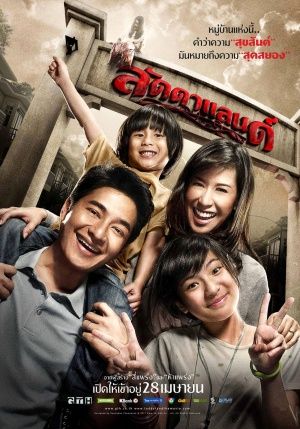
Abb.: Plakat
[Bildquelle: Wikipedia. -- Fair use]
|
"Ladda Land (Thai: ลัดดาแลนด์) is a 2011 Thai horror film directed and co-written by Sophon Sakdaphisit (โสภณ ศักดาพิศิษฐ์). The film is based on a story about a family who moves into a new house where they gradually begin to encounter paranormal events. The film was very successful in Thailand where it was the number one film in the country on its opening week. The film later had its international premiere at the 17th Busan International Film Festival (부산국제영화제). The film won six awards at the Thailand National Film Association Awards (รางวัลภาพยนตร์แห่งชาติ สุพรรณหงส์). PlotBased on strange events believed by many locals to have taken place in Chiang Mai (เชียงใหม่) late last century, the story opens with 40-ish marketer named Thee (ธีร์) (Saharath Sangkapreecha - สหรัถ สังคปรีชา, 1968 - ), his wife Parn (ป่าน) (Piyathida Woramusik - ปิยธิดา วรมุสิก, 1975 - ), his rebellious teenage daughter Nan (แนน) (Suthatta Udomsilp - สุทัตตา อุดมศิลป์, 1997 - ) and lively young son Nat (นัท) (Apipich Chutiwatkajornchai - อธิพิชญ์ ชุติวัฒน์ขจรชัย) moving from Bangkok to Laddaland (ลัดดาแลนด์), an upmarket housing estate located in Chiangmai. Convinced that his new job with a company that sells dietary supplements is the answer to all his troubles, Thee ignores Parn's legitimate concern over hefty mortgage payments; he also believes that the move will lift Nan's deep-seated resentment of him and Parn, who left the girl with her grandmother for much of her childhood. Following the grisly murder of a Burmese housemaid and Thee's unpleasant encounter with wife-beating next-door neighbour Somkiat (เกียรติ) (Sahajak Boonthanakit - สหจักร บุญธนกิจ), ghosts start appearing before Nan, who is unable to convince her parents that she's not making up these supernatural incidents. Thee mistakenly shoots Nat, and believing that he had killed his son, shoot himself. Parn, Nat and Nan leave the Ladda Land following this incident. ReleaseLadda Land was released in Thailand on April 28, 2011.[1] The film received an international premiere at the 17th Busan International Film Festival on October 11, 2011.[2] Laddaland was a big hit in Thailand where it premiered at number one in its first week, beating out the American film Thor.[3] The film was shown for six weeks in Thailand where it grossed a total of $3,877,740.[4] The Hollywood Reporter suggested in their review that the film was such a big hit in Thailand due to circumstances in the film being based on an actual condo development in Chiang Mai that is rumoured to be haunted." [Quelle: http://en.wikipedia.org/wiki/Laddaland. -- Zugriff am 2013-03-30] |
2011-04-29

Tod von Santi Thakral (สันติ ทักราล, geb. 1942).
Abb.: Santi Thakral (สันติ ทักราล)
[Bildquelle: th.Wikipedia. -- Fair use]
"Santi Thakral (Thai: สันติ ทักราล) (1942–2011) was a member of the Privy Council (คณะองคมนตรีไทย) of King Bhumibol Adulyadej of Thailand. Prior to becoming Privy Councillor, he was President of the Supreme Court of Thailand (ศาลฎีกา). Early life and education
Santi Thakral was born in the northern Thai province of Phrae (แพร่), the youngest son of an Indian Sikh (ਸਿੱਖ) and a Thai.[1] He studied at Bangkok's Assumption College (โรงเรียนอัสสัมชัญ) and Assumption Commercial College before completing his LL.B. at Thammasat University (มหาวิทยาลัยธรรมศาสตร์). He also has an M.A. in Political Science from Thammasat University. He has received training from the Academy of American and International Law at Southern Methodist University, the National College of State Judiciary at the University of Nevada, and the United Nations Asia and Far East Institute for the Prevention of Crime and Treatment of Offenders.
Career in the Thai judiciarySanti became a judge in 1968, and served as judge in the Provincial Courts of Rayong (ระยอง), Chiang Mai (เชียงใหม่), Phuket (ภูเก็ต), Thonburi (ธนบุรี). He was appointed Deputy Chief Justice of the Second and Fourth Regions. He also worked in the Court of Appeal (ศาลอุทธรณ์) and the Central Tax Court. He became a judge of the Supreme Court in 1979.[2]
After the 1992 coup d'état, the rebel military regime (คณะรักษาความสงบเรียบร้อยแห่งชาติ) put Santi in charge of seizing the assets of 13 allegedly corrupt politicians of the former elected government.
In 31 July 2001 he was appointed by a unanimous vote of the Judicial Commission as the President (Chief Council) of the Supreme Court (Thai:ประธานศาลฎีกา). The appointment was made without debating his qualifications for the position.[3] He retired a year later in 2002.
Appointment as Privy CouncillorSanti was appointed a Privy Councillor of King Bhumibol Adulyadej in 2005. During the height of protests against Prime Minister Thaksin Shinawatra (ทักษิณ ชินวัตร, 1949 - ), General Suchinda Kraprayoon (สุจินดา คราประยูร, 1933 - , head of the 1992 coup) suggested that Santi was the best possible mediator between Thaksin and the People's Alliance for Democracy (พันธมิตรประชาชนเพื่อประชาธิปไตย).[4] He died while holding that position in 2011.[5]"
[Quelle: http://en.wikipedia.org/wiki/Santi_Thakral. -- Zugriff am 2012-10-08]
2011-04-29
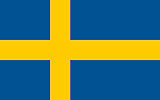
Rede von Giles Ji Ungpakorn [ใจ อึ๊งภากรณ์, 1953 - ] vor Pax et Bellum, Deoartement of Peace and Conflict Research, University of Upsala:
Lèse majesté, the monarchy and the military in Thailand. -- Online: http://mrzine.monthlyreview.org/2011/ungpakorn090511p.html. -- Zugriff am 2017-02-11
"Coercion, Ideology and lèse majesté Mainstream accounts of Thai society and politics always include the cliché that “the King is loved and respected by all Thais". This may have had some truth at certain periods in history, yet it overlooks the constant changes in public opinion and the severe repression, especially the use of the lèse majesté law, and also the manic propaganda associated with the ideology of the Monarchy.
Today there are people serving up to 18 years in prison for merely criticising the Monarchy. The lèse majesté law in Thailand represents a gross attack on the freedom of speech, freedom of expression and academic freedom. It is a fundamental attack on Democracy carried out by the Military, the Palace and the elites. The practical impact is that Thailand has struggled for years to achieve a fully developed democracy, a free press and internationally accepted academic standards in universities. Lèse majesté prisoners are tried in secret courts and denied bail. The royalist judges claim that the offense is “too serious" and “a threat to national security".
[...]
Most recently, the head of the Department of Special Investigation (DSI) has announced that people can be charged with lèse majesté for merely using “body language", like clapping or smiling, while someone else makes a speech. To date, the DSI has also failed to present any report on the post mortems of those shot by the Military one year ago.
Lèse majesté gives a green light to violence from non-state actors
Lèse majesté is not just about censorship, violence and intimidation by the state. The widespread use of the law and the manic promotion of the Monarchy by the Military and others, is a green light for royalist thugs and other non-state actors to commit violence or make threats against citizens. It applies to all those who are merely accused of lèse majesté by anyone, whether or not they are actually charged or found guilty. [...]
Republican Mood
Yet despite this repression there is now a serious republican mood among millions of citizens. The reason for this is that, since 2006, the Military and the conservatives have systematically destroyed the democratic rights of millions of people who voted for TRT [Thai Rak Thai / พรรคไทยรักไทย], using the excuse that they were “protecting the Monarchy". The King also remained silent when the Military gunned down pro-democracy demonstrators in April and May 2010 and the Queen has openly supported the PAD.
It is ironic that the majority of, both the opponents and supporters of the Monarchy, believe today that Thailand is run by the King in some kind of Absolute Monarchy system. For most Red Shirt republicans in Thailand, the King is the root of all evil and has ordered military coups and dominated politics for his own benefit. For most royalists, the King is an Absolute Monarch, a Constitutional Monarch and a “benevolent god" all at the same time! Reason does not come into the royalist thinking. Yet, the King’s power is a myth, created for ideological purposes by the ruling class, especially the Military. Flow does this myth work and how is it enforced?
[...]
The MonarchyIf we are to understand the role of the King in Thai society, we have to understand the double act performed by the Military and the Monarchy. For ruling classes to achieve hegemony in most modern societies, they require both coercion and legitimacy. The Monarchy symbolises the conservative ideology which gives legitimacy to the authoritarian actions of the Military and their allies. It is a double act of “power" and “ideological legitimacy". In this double act the weak-willed King Pumipon has no real power, but he is also a willing participant.
For the double act between the Monarchy and the Military to work, the general population have to be socialised and coerced into loving and fearing the Monarchy. It is undoubtedly true that millions of Thai people have in the past had a high regard for King Pumipon as a result of this socialisation and coercion. It is also true that millions now hate the King and even more hate the Queen because of their support for the bloody destruction of Democracy since 2006. Nearly the entire population despise the Crown Prince, having seen his thuggish behaviour and the way he forces his women to pose naked in photos that are then distributed around the internet.
[...]
Pumipon has always been a willing tool of the military, which has obstructed Democracy and the economic development of the mass of the population. For Pumipon this resulted in great rewards. He amassed so much wealth from the work of others, that he is the richest man in Thailand, the richest monarch in the world and the world’s 8th richest billionaire. Yet he preaches that his “subjects" should be happy in their poverty. His toadies have to constantly project a photo of him with a drop of sweat falling from his nose. The photo is always the same one, since Pumipon has seldom done anything to work up a real sweat. He also allows the use of crawling and special royal language in his presence without any sense of shame."
[a.a.O.]
2011-04-30

Somyot Prueksakasemsuk (สมยศ พฤกษาเกษมสุข, 1961 - ), der Herausgeber der Zeitschrift Voice of Thaksin wird vom Department of Special Investigation verhaftet. Anklage: Teilnahme an einer Verschwörung zum Sturz der Monarchie.
Abb.: Somyot Prueksakasemsuk (สมยศ พฤกษาเกษมสุข)
[Bildquelle: http://sunaifanclub.blogspot.de/2012/01/2555.html. -- Zugriff am 2012-10-28. -- Fair use]
2011-05
In Blick auf die Wahlen verspricht Ministerpräsident Abhisit, die Mindestlöhne innerhalb der nächsten zwei Jahre auf 250 Baht pro Tag zu erhöhen. Für Facharbeiter werden aber jetzt schon 300 bis 400 Baht pro Tag bezahlt.
Die Textilindustrie Thailands schrumpfte in den letzten Jahren von 2600 Fabriken auf 1600 Fabriken. Die Textilindustrie wandert zunehmend in die Billiglohnländer Kambodscha, Indonesien und Vietnam ab.
Abb.: Abnahme der Textilfabriken von 2006 bis 2011
[Datenquelle: NZZ. -- 2011-05-07. -- S. 10]Die thailändische Handelskammer sieht die Zukunft in einer Arbeitsteilung gemäß den komparativen Kostenvorteilen:
- Thailand: Design
- Kambodscha, Laos, Vietnam: Zuschneiden und Stricken
- Marketing: Malaysia, Singapur
Abb.: Kostengünstige Arbeitsteilung der Textilindustrie
[Bildquelle: CIA. -- Public domain]
2011-05

"May 2011, Joe Gordon, an American citizen born in Thailand as Lerpong Wichaikhammat,[62] had lived in the United States for thirty years before returning to his homeland where he was arrested on charges of insulting Thailand's monarchy — in part by posting a link on his blog to a banned book about the ailing king. Gordon is also reportedly suspected of translating, from English into Thai, portions of The King Never Smiles – an unauthorized biography of King Bhumibol Adulyadej – and posting them online, along with articles he wrote that allegedly defame the royal family.[69][70] "I want President Obama and Hillary Clinton to intervene on on my behalf," he is quoted as saying.[71] After being denied bail eight times, a shackled–and–handcuffed Gordon said in court on 10 October, “I’m not fighting in the case. I’m pleading guilty, sirs.”[72] On 8 December 2011 a court in Thailand sentenced Joe Gordon to two and a half years in prison (halved from five years due to pleading guilty) for defaming the country's royal family by translating excerpts of a locally banned biography of the king and posting them online.[73] The 10 October AP report on Joe Gordon's plea adds that "Yingluck’s government has been just as aggressive in pursuing the cases as its predecessors.". On July 10, 2012, Gordon received a pardon from the King and was released from jail.[74]" [Quelle: http://en.wikipedia.org/wiki/L%C3%A8se_majest%C3%A9_in_Thailand. -- Zugriff am 2012-11-03]
2011-05-02

In Abbottabad (ایبٹ آباد, Pakistan) erschießt eine Spezialeinheit der US-Navy Osama bin Laden (أسامة بن لادن) (geboren 1957/58), den Gründer des Terrornetzwerks Al-Qaida (القاعدة).
Abb.: Lage von Abbottabad (ایبٹ آباد, Pakistan)
[Bildquelle: OpenStreetMap. -- Creative Commons Lizenz (Namensnennung, share alike)]
Abb.: Osama bin Laden, Bangkok, 2011
[Bildquelle: Philip Roeland. -- http://www.flickr.com/photos/philiproeland/5472777980/. -- Zugriff am 2012-01-14. -- Creative Commons Lizenz (Namensnennung, keine kommerzielle Nutzung, keine Bearbeitung)]
2011-05-03
Es erscheint
Bouckaert, Peter ; Brad Adams ; James D. Ross ; Danielle Haas: Descent into chaos: Thailand's 2010 Red Shirt protests and the government crackdown. -- New York, NY: Human Rights Watch, 2011. -- 156 S. -- ISBN 9781564327642
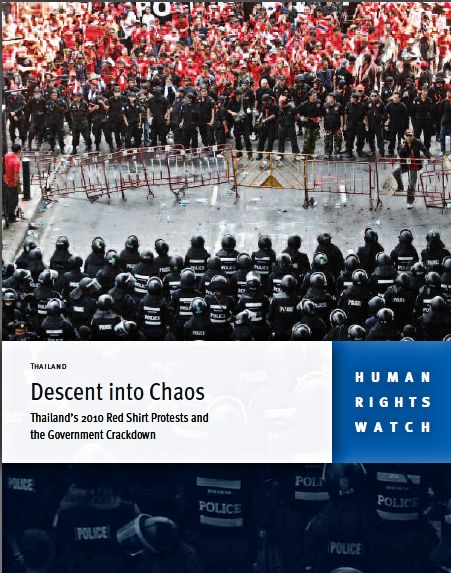
Abb.:
Einbandtitel
| "This
report provides the most detailed account yet of violence and human
rights abuses by both sides during and after massive protests in Bangkok
and other parts of Thailand in 2010. The report is based on 94
interviews with victims, witnesses, protesters, academics, journalists,
lawyers, human rights defenders, parliament members, government
officials, security personnel, police, and those who directly took part
in various stages of the violence from both the government and the
protester sides. It documents deadly attacks by government security
forces on protesters in key incidents and details abuses by armed
elements, known as “Black Shirts,” associated with the United Front for
Democracy against Dictatorship (UDD). The report also explains the
background to the political crisis that led to the protests and
continues to the present." [Quelle: http://www.hrw.org/node/98416. -- Zugriff am 2013-02-28] |
2011-05-03
Zum Beispiel: in der Provinz Chon Buri (ชลบุรี) erhalten 10 ehemalige Mitglieder der Communist Party of Thailand (CPT, พรรคคอมมิวนิสต์แห่งประเทศไทย - พคท) je 5 Rai Land, fünf Kühe und eine finanzielle Unterstützung. Dies geschieht aufgrund eines 1980 gestarteten Programms zur Wiedereingliederung von ehemaligen CPT-Mitgliedern in die Gesellschaft.
Abb.: Lage der Provinz Chonburi (ชลบุรี)
[Bildquelle: OpenStreetMap. -- Creative Commons Lizenz (Namensnennung, share alike)]
2011-05-07
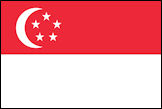
Parlamentswahlen in Singapur. Wahlsieger: die seit 52 Jahren regierende People's Action Party (人民行動黨 / Parti Tindakan Rakyat / மக்கள் செயல் கட்சி) von Ministerpräsident Lee Hsien Loong (李顯龍, 1952 - ) mit 81 der 87 Parlamentssitze.
Abb.: Singapur
[Bildquelle: CIA. -- Public domain]
2011-05-07/13
Sondhi Limthongkul (สนธิ ลิ้มทอง กุล / 林明達, 1947 - ) in Asia Satellite TV über die People's Alliance for Democracy (PAD) (พันธมิตรประชาชนเพื่อประชาธิปไตย, Gelbhemden - เสื้อเหลือง):
"At the beginning, it was about building a united front by those who hated Thaksin [Thaksin Shinawatra - ทักษิณ ชินวัตร, 1949 - ]. But there were swingers among those who joined, namely those of the Democrat Party [พรรคประชาธิปัตย์], those who "loved" the Democrats, for example the mom chao [หม่อมเจ้า], or the mom ratchawong [หม่อมราชวงศ์] (ranks of the old aristocracy), HiSo [พวกไฮโซ] (high society). When Abhisit [Abhisit Vejjajiva - อภิสิทธิ์ เวชชาชีวะ, 1964 - ] became prime minister, they were satisfied, and started to cheer Abhisit." [Übersetzung: Nelson, Michael H. <1952 - >: "Vote No!" : the PADs decline from powerful movement to political sect?. -- In: "Good coup" gone bad : Thailand's political developments since Thaksin's downfall / ed by Pavin Chachavalpongpun [ปวิน ชัชวาลพงศ์พันธ์]. -- Singapore : Institute of Southeast Asian Studies, 2014. -- 290 S. ; 23 cm. -- ISBN 9789814459600. -- Konferenzband zu: Five years after the military coup : Thailand's political developments since Thaksin's downfall. -- Singapore 2011-09-19. -- S. 145]
2011-05-08
Südlichstes Thailand: zwei Bombenanschläge und eine Schießerei: sieben Polizisten und Soldaten getötet, 15 Verletzte.
2011-05-19
Jahrestag der brutalen Auflösung der Rothemden (เสื้อแดง)-Besetzung durch Regierungstruppen: Demonstration von ca. 20.000 Rothemden (เสื้อแดง) in Bangkok mit buddhistischem Totengedenken. Alle Demonstrationen der Rothemden (เสื้อแดง) verliefen weitgehend friedlich. Trotzdem gibt es in der Folge Vorladungen und Anklagen wegen Majestätsbeleidigung gegen mehrere Redner.
2011-05-19
Trang (ตรัง): laut Polizeiangaben sind von den ursprünglich 16 Berufskillern noch 5 im Geschäft.
Abb.. Lage von Trang (ตรัง)
[Bildquelle: OpenStreetMap. -- Creative Commons Lizenz (Namensnennung, share alike)]
2011-05-30

US-Senator John McCain ist in Thailand und trifft den Ministerpräsidenten.
Abb.: John McCain, 2011
[Bildquelle: DonkeyHotey. -- http://www.flickr.com/photos/donkeyhotey/5325718336/. -- Zugriff am 2012-11-05. -- Creative Commons Lizenz (Namensnennung, share alike)]
2011-05-31
Die FIFA (Fédération Internationale de Football Association) spricht Worawi Makudi (วรวีร์ มะกูดี, 1951 - ) und drei weitere Mitglieder des FIFA-Exekutivkomitees vom Vorwurf der Korruption frei.
Abb.: Worawi Makudi (วรวีร์ มะกูดี), 2009
[Bildquelle: The Official Site of The Prime Minister of Thailand Photo by พีรพัฒน์ วิมลรังครัตน์. -- http://www.flickr.com/photos/40561337@N07/3750582452/. -- Zugriff am 2012-11-05. -- Creative Commons Lizenz (Namensnennung)]
"Worawi Makudi (Thai: วรวีร์ มะกูดี, gesprochen: [wɔːrá. wiː má. kuːdiː]; * 29. November 1951 in Thailand) ist ein thailändischer Fußballfunktionär. Worawi Makudi war elf Jahre lang Generalsekretär des thailändischen Fußballverbandes (สมาคมฟุตบอลแห่งประเทศไทย ในพระบรมราชูปถัมภ์) bevor er 2007 zum Verbandspräsidenten gewählt wurde.[1] Seit 1997 ist er Mitglied des FIFA-Exekutivkomitees[2] und Vorsitzender der Kommission für Frauenfußball. Er wurde von der Asiatischen Fußball-Konföderation (AFC) als Kandidat für die Wiederwahl bis 2015 im Januar 2011 bestätigt.
KorruptionsvorwürfeWorawi steht seit Jahren aufgrund von Korruptionsvorwürfen in der Kritik. Er soll eigenen Grundbesitz mit Mitteln aus dem Entwicklungshilfeprogramm GOAL aufgewertet haben. Mitte Dezember 2011 wurde Worawi jedoch trotz erdrückender Beweise für diesen Sachverhalt von Sepp Blatter, dem selbst umstrittenen FIFA-Vorsitzenden, entlastet.
Worawi habe entlastende Unterlagen vorgelegt, hieß es. Nähere Angaben dazu wurden jedoch nicht gemacht. Worawi verweigerte sich einem Interview.
Der Deutschlandfunk erfuhr jedoch exklusiv (Quelle: www.dradio.de - Blatter entlastet korrupte Funktionäre), um welche Unterlagen es sich handelte: Erst mit Datum vom 16. November 2011 habe Worawi die Grundstücke an Thailands Fußballverband übertragen. Ein von der FIFA in Auftrag gegebenes Gutachten der Zürcher Kanzlei Niederer, Kraft & Frey hält das fest.
Die beglaubigte Übertragung geschah also erst acht Jahre nachdem Worawi das Versprechen gegeben und das GOAL-Geld beantragt hatte. Und erst, nachdem die FIFA ihm bis 1. Dezember eine zweite Frist gesetzt hatte, Unterlagen beizubringen. Ob er zur ersten Frist gelogen hat und gefälschte Unterlagen einreichte, wie thailändische Quellen vermuten, lässt sich nicht sagen. Die FIFA gibt dazu und zu vielen anderen Fragen in dieser Sache keine Antwort.
Am 14. September 2012 teilte ein thailändischer Regierungssprecher mit, dass der Thailändische Fußballverband wegen der Vorwürfe gegen Worawi (den Aufbau der Thai Premier League und einer Vermarktungsfirma vorangetrieben zu haben, um Profit zu erwirtschaften), gezwungen sein könnte, sich aufzulösen[3], da es dem Verband nicht gestattet gewesen sei, Gewinne zu erzielen.
Eine Woche später bestritt Worawi gegenüber der Presse alle Betrugsvorwürfe.[4] Insbesondere nannte er die Vorwürfe eines koreanischen Unternehmens "lächerlich", nach denen er, Worawi, ungerechtfertigterweise und vorzeitig einen vierjährigen exklusiven Vertrag für Übertragungsrechte im Wert von $ 2.4 Millionen Dollar pro Jahr gekündigt hätte. Seitens der Koreaner steht dem Thai Fußballverband eine Millionenklage ins Haus, unterdessen hat Worawi eine Gegenklage angekündigt.[5]"
[Quelle: http://de.wikipedia.org/wiki/Worawi_Makudi. -- Zugriff am 2012-11-05]
2011-06
"Nach dem Angriff Aufständischer auf eine Militäreinrichtung in Narathiwat [นราธิวาส] im Juni 2011 folterten oder misshandelten die Behörden Berichten zufolge mindestens neun Verdächtige." [Quelle: http://amnesty.de/jahresbericht/2012/Thailand. -- Zugriff am 2012-10-23]
Abb.: Lage von Narathiwat (นราธิวาส)
[Bildquelle: OpenStreetMap. -- Creative Commons Lizenz (Namensnennung, share alike)
2011-06
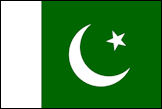
"Im Juni erlaubten die Einwanderungsbehörden zum ersten Mal, dass 96 Flüchtlinge - sämtlich Ahmadiyya (احمدِیہ) aus Pakistan - gegen Kaution aus dem Haftzentrum für Einwanderer in Bangkok entlassen wurden." [Quelle: http://amnesty.de/jahresbericht/2012/Thailand. -- Zugriff am 2012-10-23]
Abb.: Lage von Pakistan
[Bildquelle: CIA. -- Public domain]
2011-06


Der schottische Journalist Andrew MacGregor Marshall (1971 - ) verlässt die Nachrichtenagentur Reuters und veröffentlicht aufgrund der US-Botschafts-Dokumente, die durch Cablegate/WikiLeaks veröffentlicht wurden, die elektronische Publikation:
Marshall, Andrew MacGregor <1971 - >: #thaihistory : Thailand's moment of truth ; a secret history of 21st century Siam. -- o.O. : zenjournalist, 2011. -- Online erhältlich: http://www.zenjournalist.org/2011/06/28/thaistory/. --- Zugriff am 2013-02-13. -- Für das Werk gibt es eine Creative Commons Lizenz (Namensnennung, keine kommerzielle Nutzung, share alike)
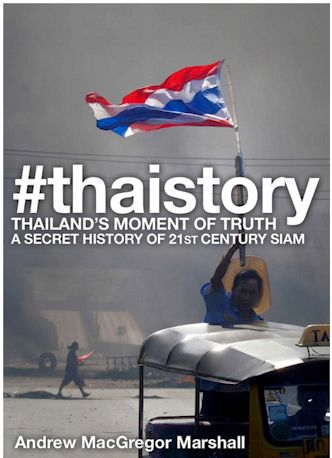
Abb.: Titel
2011-06
Zum Beispiel: Regierungsamtliches Sprayen von Insektiziden gegen Moskitos in Nordostthailand
[Quelle der mp4-Datei: Justin Yoshida. -- https://www.youtube.com/watch?v=7sCqy2zCz6Y. -- Zugriff am 2014-03-12. -- Creative Commons Lizenz (Namensnennung)]
2011-06

Almosengang (บิณฑบาต) von 10.000 Mönchen und Novizen in Chiang Mai (เชียงใหม่) (Dhammakaya - ธรรมกาย)
Video: Almosengang (บิณฑบาต) von 10.000 Mönchen und Novizen in Chiang Mai (เชียงใหม่)
[Quelle der mp4-Datei: Shama Kern. -- https://www.youtube.com/watch?v=YBmT_55RHJE. -- Zugriff am 2014-03-19. -- Creative Commons Lizenz (Namensnennung)]
2011-06

Zum Beispiel: Katha (กถา) Maha Jinda Manee Montr (มหาจินดามณีมนต์)
"Mantra for chanting to all Jinda Manee (นดามณี) magic spell amulets, including the Jao Ngo Pha Deity for riches, love and protection."
[Quelle der mp4-Datei: Thailand Amulets. -- https://www.youtube.com/watch?v=z4ZL4yKZv80. -- Zugriff am 2014-03-13. -- Creative Commons Lizenz (Namensnennung)]
2011-06-02

Das Ministerium für Kultur ist besorgt über Tätowierungen an Ausländern mit religiösen Bildnissen des Buddhismus und anderer Religionen. Ausländer kommen nach Thailand, um sich Buddhabildnisse oder den Hindu-Gott Ganescha (गणेश / พระคเณศ) tätowieren zu lassen. Solche Tattos können bis zu 20.000 Baht kosten. Das Ministerium hat die Provinzgouverneure aufgefordert, die Tattoo-Studios zu kontrollieren. Es wird ein Gesetz vorbereitet, das solche Tattoos verbietet.
Abb.: Buddhakopf als Tätowierung, Bangkok, 2006
[Bildquelle: Binder.donedat. -- http://www.flickr.com/photos/binderdonedat/98258702/. -- Zugriff am 2012-11-06. -- Creative Commons Lizenz (Namensnennung, keine Bearbeitung)]
Abb.: Ganescha als Tätowierung, Chiang Mai, 2010
[Bildquelle: art dejavu. -- http://www.flickr.com/photos/augrust/4367307433/. -- Zugriff am 2012-11-06. -- Creative Commons Lizenz (Namensnennung, keine kommerzielle Nutzung, keine Bearbeitung)]
2011-06-04 - 2011-11-27

54. Biennale Venedig. Thailand ist durch Navin Rawanchaikul (1971 - ) vertreten.
2011-06-07

"People Army With Hope to Return Mandate to King" hat eine Petition mit 100.000 Unterschriften an den König übergeben: darin wird der König um eine Aussetzung der Demokratie und Einführung einer regierenden Monarchie gebeten. Begründung: das Volk leidet unter den immer korrupteren Politikern.
2011-06-07
Es erscheint:
Szep, Jason <1969 - > ; Ahuja, Ambika: Special Report: Defiance in Thailand's "red shirt villages". -- http://www.reuters.com/article/us-thailandelection-idUSTRE75614T20110607. -- Zugriff am 2016-12-31
Abb.: Red Shirt Village for Democracy," [หมู่บ้านเสื้อแดงเพื่อประชาธิปไตย]
[Faire use]
"Its brilliant green rice paddies, thatched-roof huts and overgrown jungle resemble most rural villages in northeast Thailand. But the red sign looming over a quiet dusty road in the community of Nong Hu Ling [อุดรธานี] is something different. "Red Shirt Village for Democracy," [หมู่บ้านเสื้อแดงเพื่อประชาธิปไตย] it reads, proclaiming its allegiance to the red-shirted, anti-government movement whose protests paralyzed Bangkok last year and sparked a bloody military crackdown that ended with 91 people killed and hundreds of activists arrested.
"After what happened in Bangkok, people were scared to wear red shirts," said Kongchai Chaikang, chief of Nong Hu Ling, a village of 350 people in Udon Thani province, about 450 km (280 miles) northeast of Bangkok. "They feared they would be harassed by police or followed by plain-clothes officers. We want to give them courage by sticking together."
The idea is catching on. Ahead of a July 3 national election, dozens of rural communities are branding themselves a "Red Shirt Village" in this poor northeast plateau, home to a third of the country's population, giving the movement grass-roots muscle to mobilize behind its parliamentary allies, the opposition Puea Thai Party.
The mostly low-income red shirts broadly support ousted populist premier Thaksin Shinawatra in a five-year political conflict against the traditional Bangkok elite that includes top generals, royal advisers, middle-class bureaucrats, business leaders and old-money families who back the ruling Democrat Party.
At least 320 villages in the provinces of Udon Thani and Khon Kaen [ขอนแก่น] have designated themselves "Red Shirt Villages" through regional offices of the United Front for Democracy Against Dictatorship (UDD), as the movement is formally known."
[a.a.O. -- Faire use]
2011-06-07

Chang Su-chuan (Zhang Suquan) aka. Falang, ehemaliger Oberkommandierender der Armee von Drogenkönig Khun Sa (ခွန်ဆာ, 1934 - 2007), stirbt 84jährig in Yangon (ရန်ကုန်) (Myanmar)
2011-06-08
Provinz Ayutthaya (อยุธยา): ein mit 2.400 Tonnen Zucker beladenes Binnenschiff kollidiert auf dem Chao Phraya (แม่น้ำเจ้าพระยา) mit einem Brückenpfeiler. Der Zucker fiel ins Wasser: 80 Tonnen Fisch werden durch das Zuckerwasser getötet.
Abb.: Lage der Provinz Ayutthaya (อยุธยา)
[Bildquelle: OpenStreetMap. -- Creative Commons Lizenz (Namensnennung, share alike)]
2011-06-10/18
Bangkok: 42nd International Physics Olympiad (IPhO 2011)
2011-06-11


Der Spiegel bringt unter dem Titel "Wir wollen keine Rache" ein Interview mit Ex-Ministerpräsident Thaksin Shinawatra (ทักษิณ ชินวัตร, 1949 - ) aus seinem Exil in Dubai (دبيّ). Darin gibt Thaksin u. a. Fehler im "Anti-Drogen-Krieg" zu:
"Thaksin: Wir haben Fehler gemacht, besonders im Anti-Drogen-Krieg ... SPIEGEL: ... in dem Tausende Menschen starben.
Thaksin: Vielleicht war mein Vorgehen zu drastisch. Ich wollte, dass etwas geschieht, ich wollte diesen Verbrechern Angst einjagen und sie warnen. Aber ich habe nie persönlich angeordnet, dass jemand getötet wird. Ich bin Buddhist und glaube, dass derjenige, der jemanden tötet, im nächsten Leben selbst getötet wird. Als ich noch Premierminister war, sind Leute auf mich zugekommen und haben mich gefragt, ob sie meinen Gegner Sondhi Limthongkul (สนธิ ลิ้มทองกุล / 林明達, 1947 - ) aus dem Weg räumen sollen. Ich war sehr mächtig damals, aber ich habe gesagt: kommt nicht in Frage. Ich will nicht, dass jemand umgebracht wird, selbst wenn es sich um Sondhi Limthongkul handelt."
[Quelle: Der Spiegel. -- 24/2011. -- S. 95]
Abb.: Lage von Dubai (دبيّ)
[Bildquelle: OpenStreetMap. -- Creative Commons Lizenz (Namensnennung, share alike)]
2011-06-13
Thai Airways International will seine Flotte modernisieren. Darum will man kaufen:
- 6 Boeing 777-300
- 4 Airbus A350-900
- 5 Airbus A320-200
Gesamtwert: US$ 1,6 Milliarden.
Abb.: THAI Boeing 777-300, Australien, 2012
[Bildquelle: David McKelvey. -- http://www.flickr.com/photos/dgmckelvey/6874830489/. -- Zugriff am 2012-11-06. -- Creative Commons Lizenz (Namensnennung)]
2011-06-13
Praphan Khunmi (ประพันธ์ คูณมี, 1954 - ), Aktivist der People's Alliance for Democracy (PAD) (พันธมิตรประชาชนเพื่อประชาธิปไตย, Gelbhemden - เสื้อเหลือง), in einem Interview in Post Today:
"The MPs [Members of Parlkiament] are merely tools of the political parties, not independent representatives of the entire Thai people in order to protect the power of ' the people. The MPs are subject to dictatorial resolutions of their parties, because they have to use the party financiers' money to protect their power. The cabinet comprises representative of groups and political parties that share in the spoils. If many parties join the government, they will share them according to their quotas. They do not divide the work to further the benefit of the country and the people.
This situation, according to Praphan, demonstrated that Thailand had "a dictatorial system by political parties, not a system of democracy.""
[Zitiert in: Nelson, Michael H. <1952 - >: "Vote No!" : the PADs decline from powerful movement to political sect?. -- In: "Good coup" gone bad : Thailand's political developments since Thaksin's downfall / ed by Pavin Chachavalpongpun [ปวิน ชัชวาลพงศ์พันธ์]. -- Singapore : Institute of Southeast Asian Studies, 2014. -- 290 S. ; 23 cm. -- ISBN 9789814459600. -- Konferenzband zu: Five years after the military coup : Thailand's political developments since Thaksin's downfall. -- Singapore 2011-09-19. -- S. 149]
2011-06-21
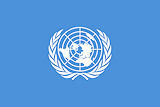
Ban Ki Moon (반기문, 1944 - ) wird als UNO-Generalsekretär wiedergewählt.
2011-06-21


Die Neue Zürcher Zeitung bringt einen 3/4-Seiten Artikel von Marco Kauffmann Bossart: "Thailands Hatz auf vermeintliche Feinde der Monarchie : sprunghafter Anstieg der Verfahren wegen Majestätsbeleidigung". Zusammenfassung: "In Thailand wird das drakonische Lèse-Majesté-Gestz zunehmend politisch instrumentalisiert. Gleichzeitig verhindern die royalistischen Eliten eine öffentliche Diskussion über die Zukunft der Monarchie."
2011-06-25
Bangkok: erstes DARE Professional Mixed Martial Arts (MMA) Championship.
Abb.: 2. DARE, Bangkok, 2012-01-07
[Bildquelle: Kamren Barlow. -- http://www.flickr.com/photos/kamgtr/8108198941/. -- Zugriff am 2012-10-22. -- Creative Commons Lizenz (Namensnennung)]
"Mixed Martial Arts (deutsch „Gemischte Kampfkünste“) oder kurz MMA ist eine relativ moderne Art des Vollkontaktwettkampfes. Populär geworden ist MMA durch die Vergleichskämpfe im Ultimate Fighting Championship (UFC) der frühen 1990er Jahre, bei dem Techniken aus verschiedenen Kampfsportarten angewendet werden. Die Kämpfer bedienen sich sowohl der Schlag- und Tritttechniken (Striking) des Boxens, Kickboxens sowie des Muay Thai (มวยไทย) und Karate (空手) als auch der Bodenkampf- und Ringtechniken (Grappling) des Brazilian Jiu-Jitsu, Ringens, Judo (柔道) und Sambo (самбо). Aber auch Techniken aus anderen Kampfkünsten werden benutzt.
Dass auch im Bodenkampf geschlagen und zum Teil getreten werden darf, ist das Hauptunterscheidungsmerkmal zu anderen Vollkontaktsportarten. Dieser "Tabubruch" führte zum Sendeverbot von Mixed Martial Arts Profikämpfen im deutschen Fernsehen."!
[Quelle: http://de.wikipedia.org/wiki/Mixed_Martial_Arts. -- Zugriff am 2012-10-22]
"In 2012, the Sports Authority of Thailand banned competitions. It is widely speculated that the Muay Thai (มวยไทย) industry played a factor in the government's final decision, as MMA could potentially take away future Muay Thai stars from their sport." [Quelle: http://en.wikipedia.org/wiki/Mixed_martial_arts. -- Zugriff am 2012-10-22]
ausführlich: http://www.payer.de/thailandchronik/ressourcen.htm
Zu Chronik Chronik 2011 / B. E. 2554. -- 3. Juli bis Dezember